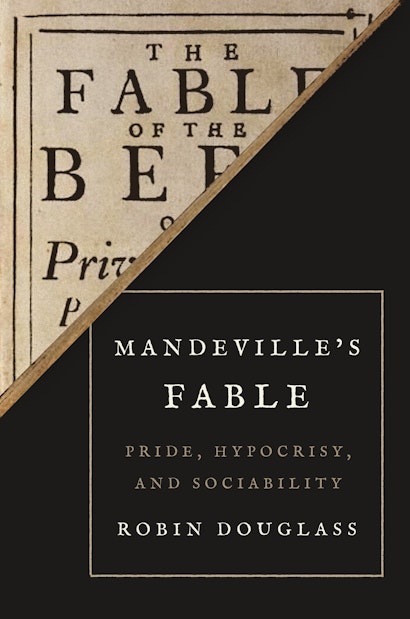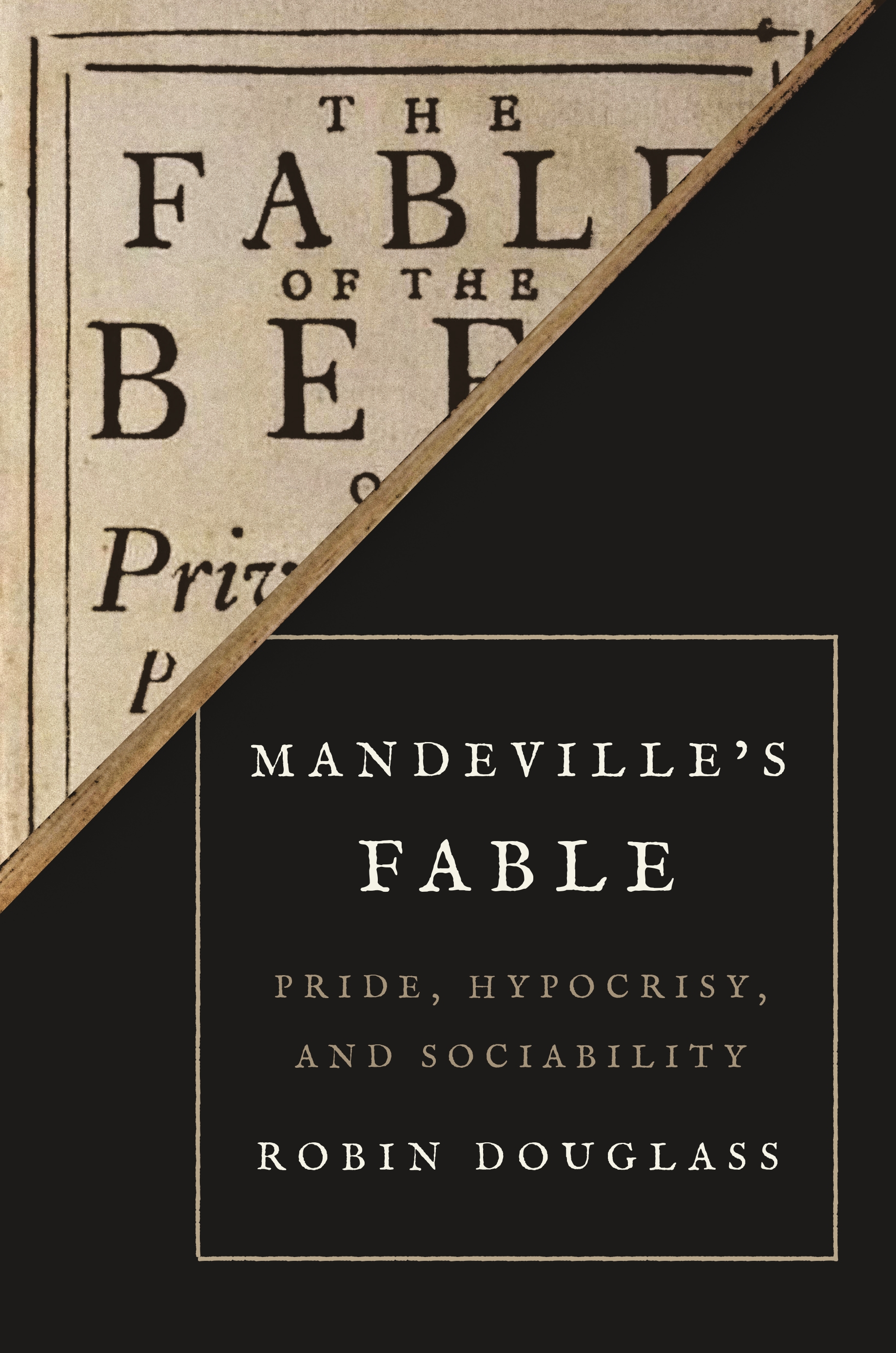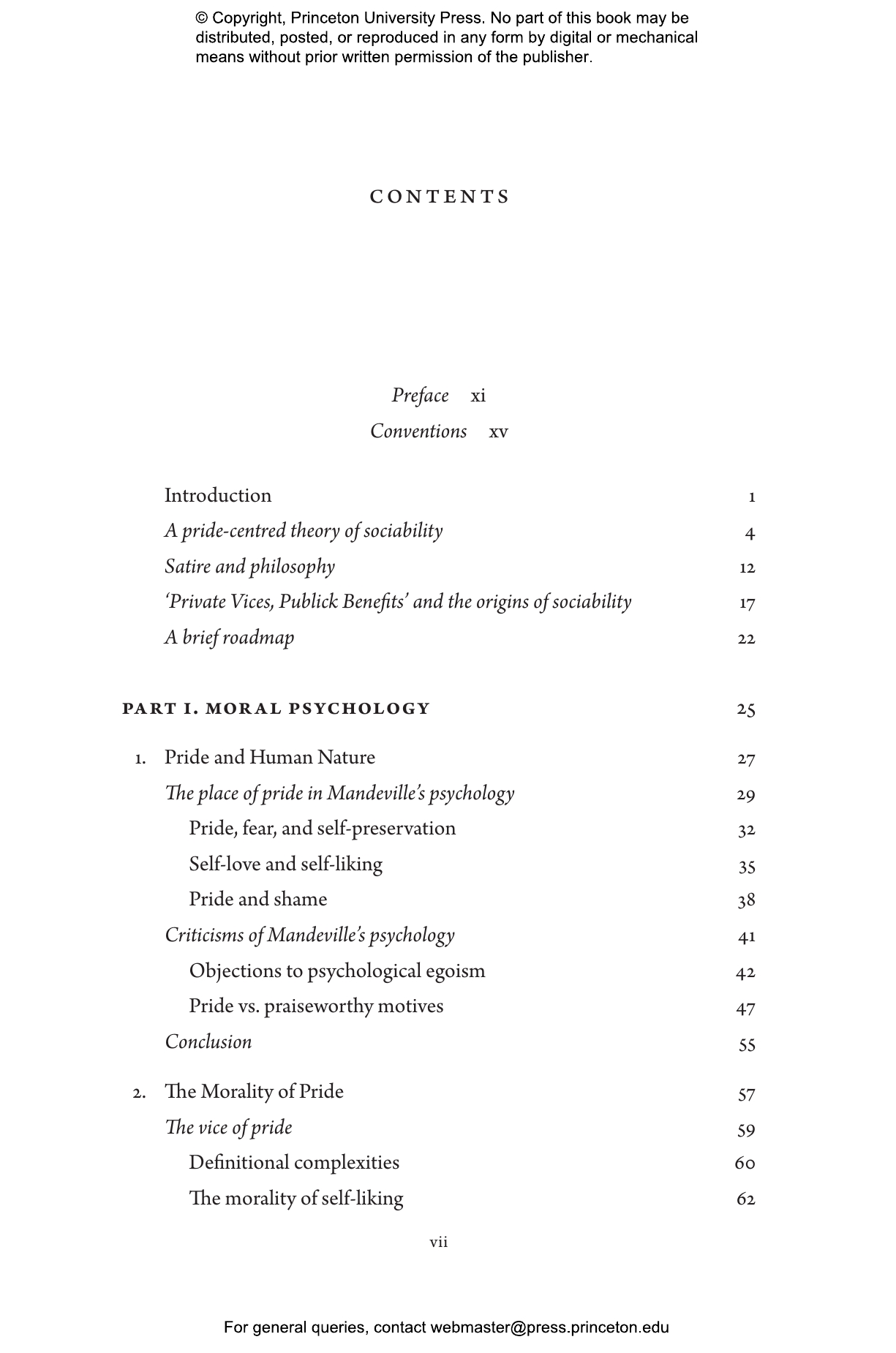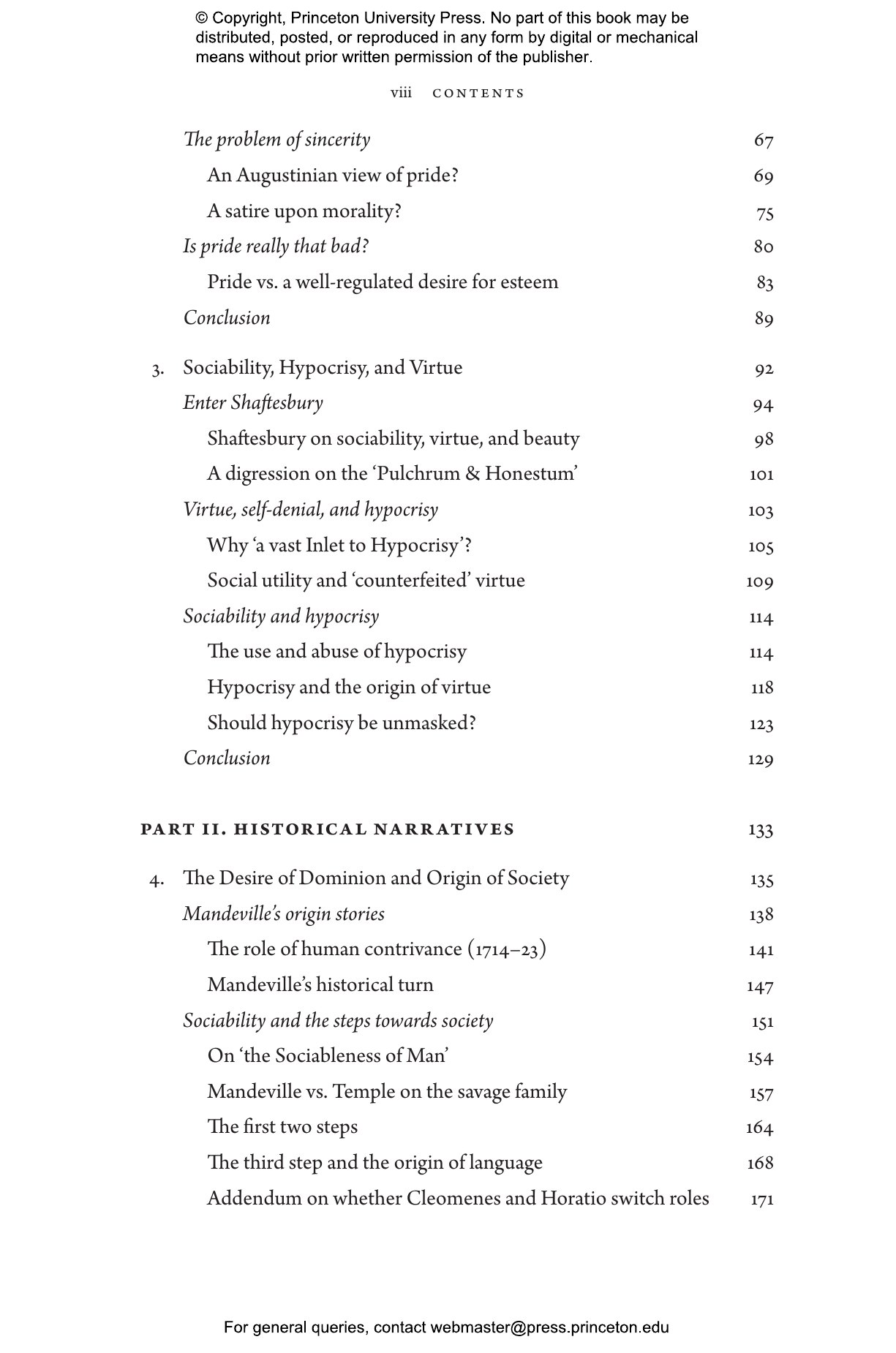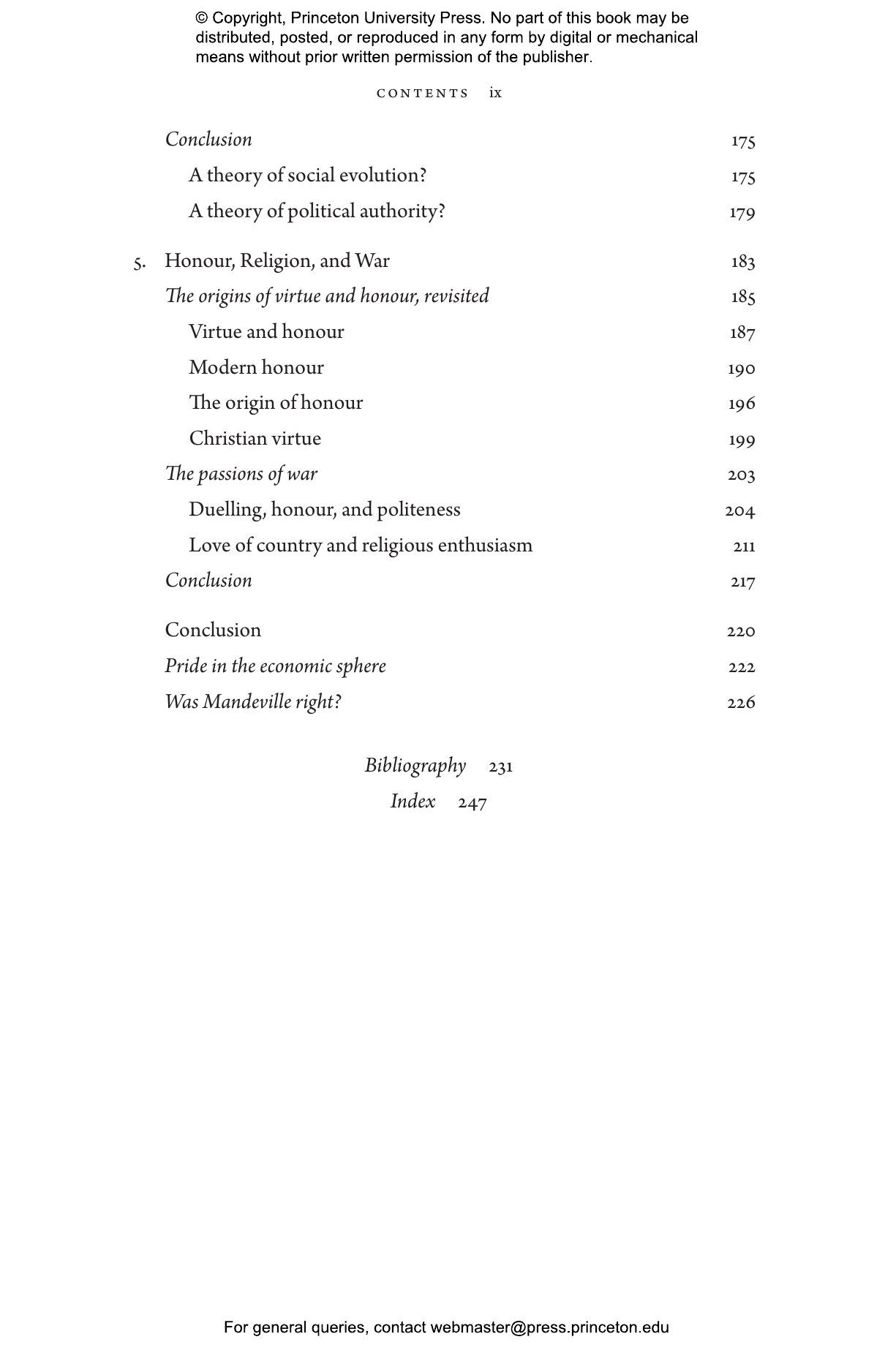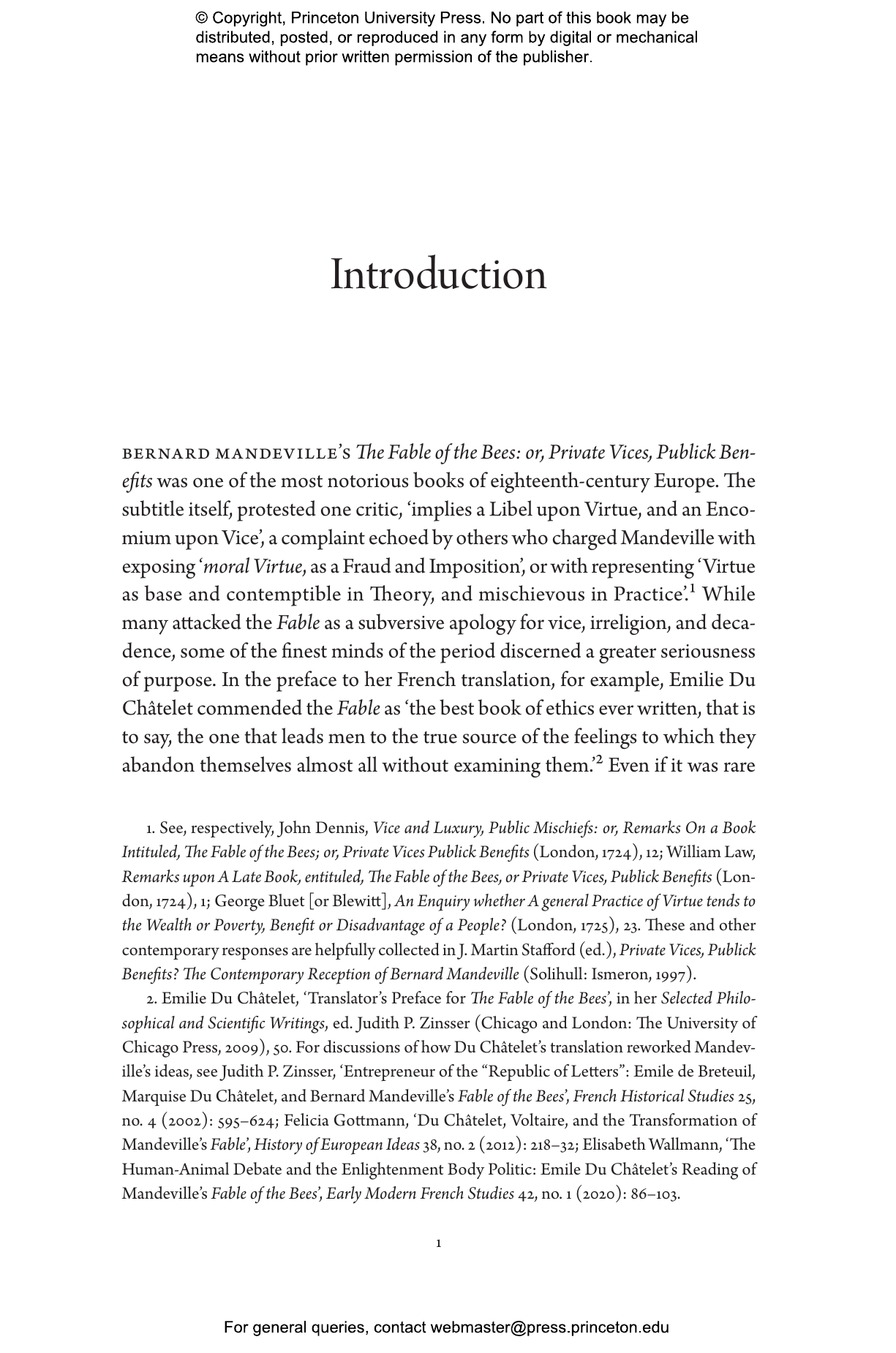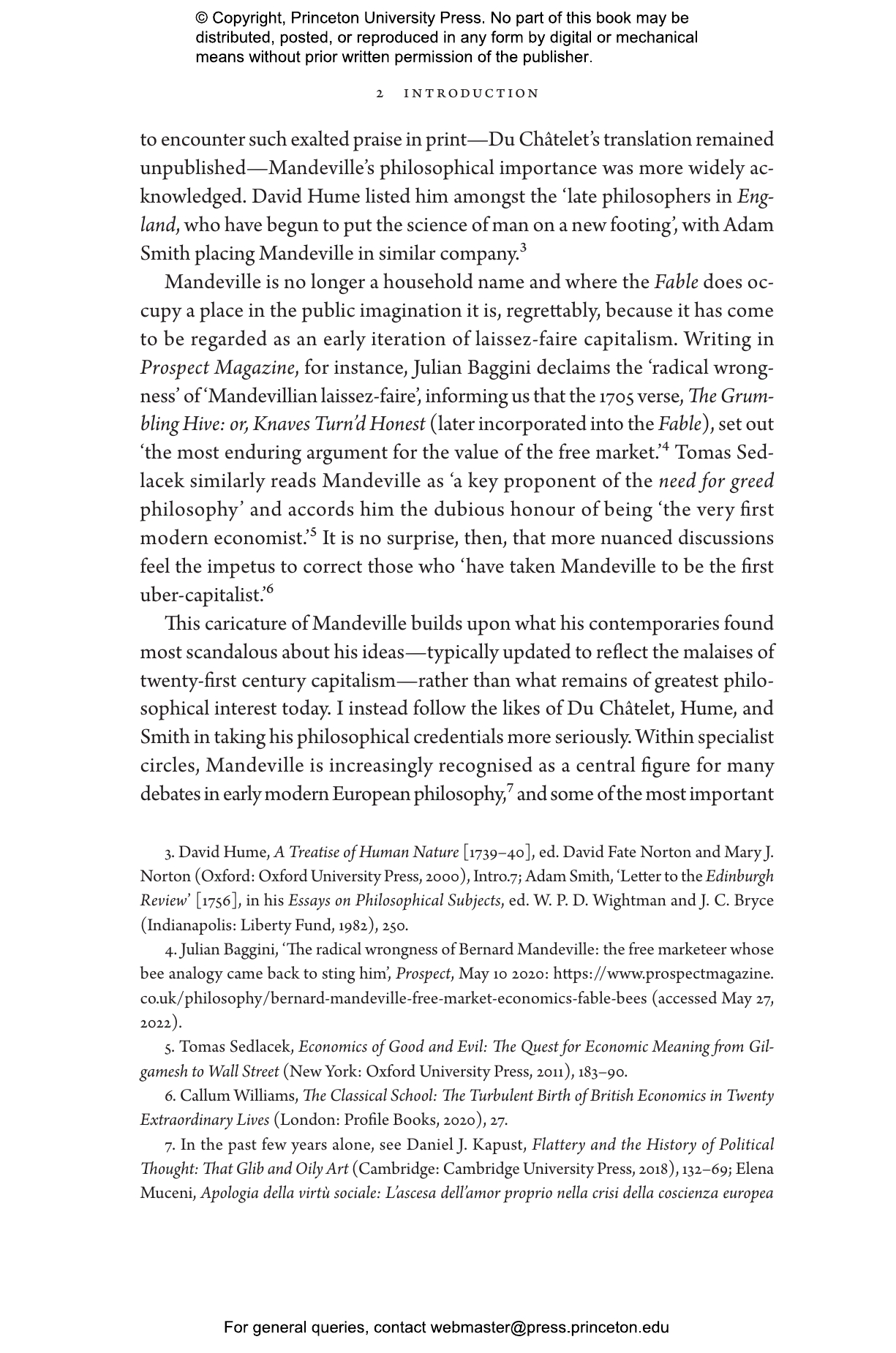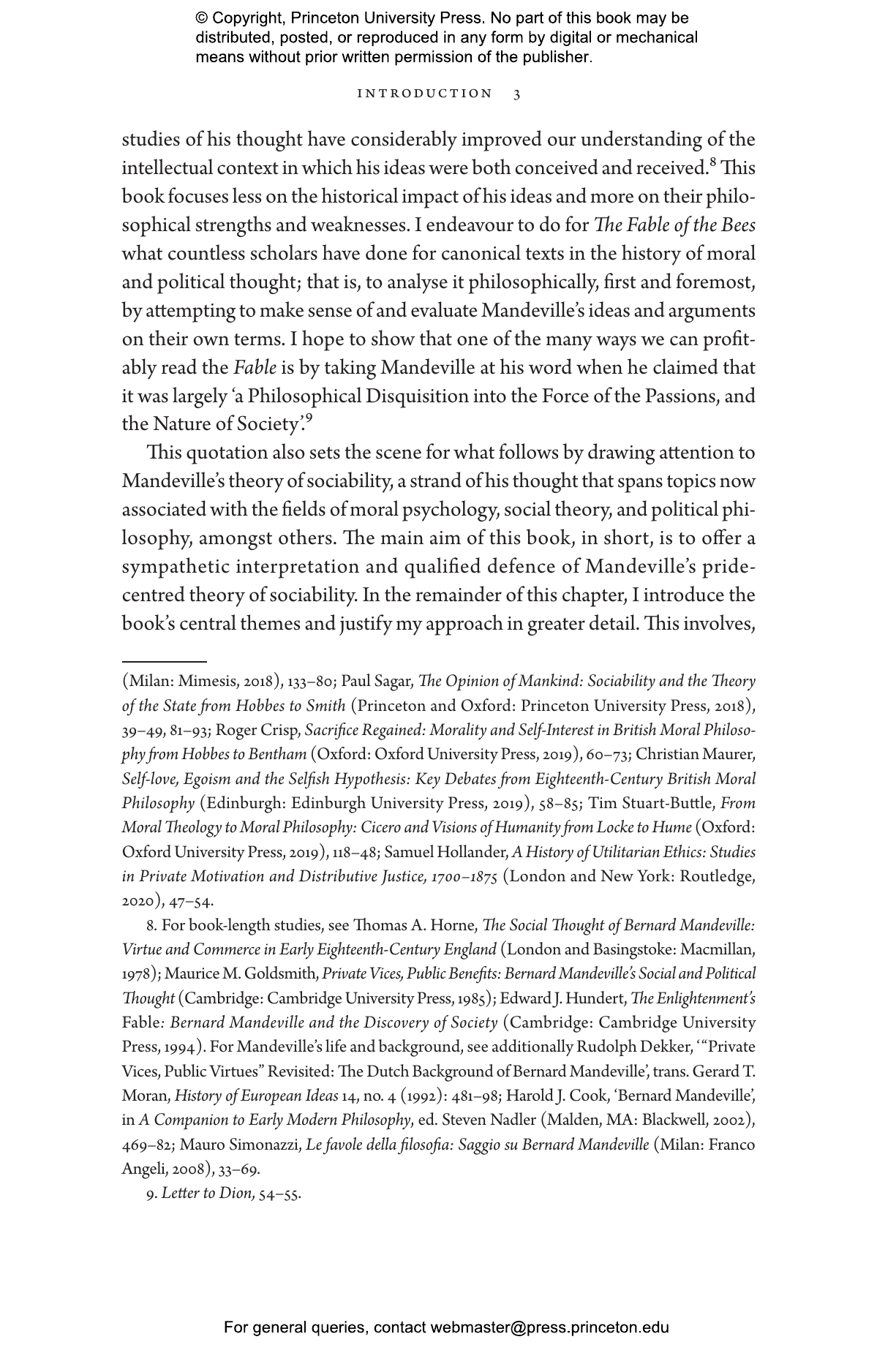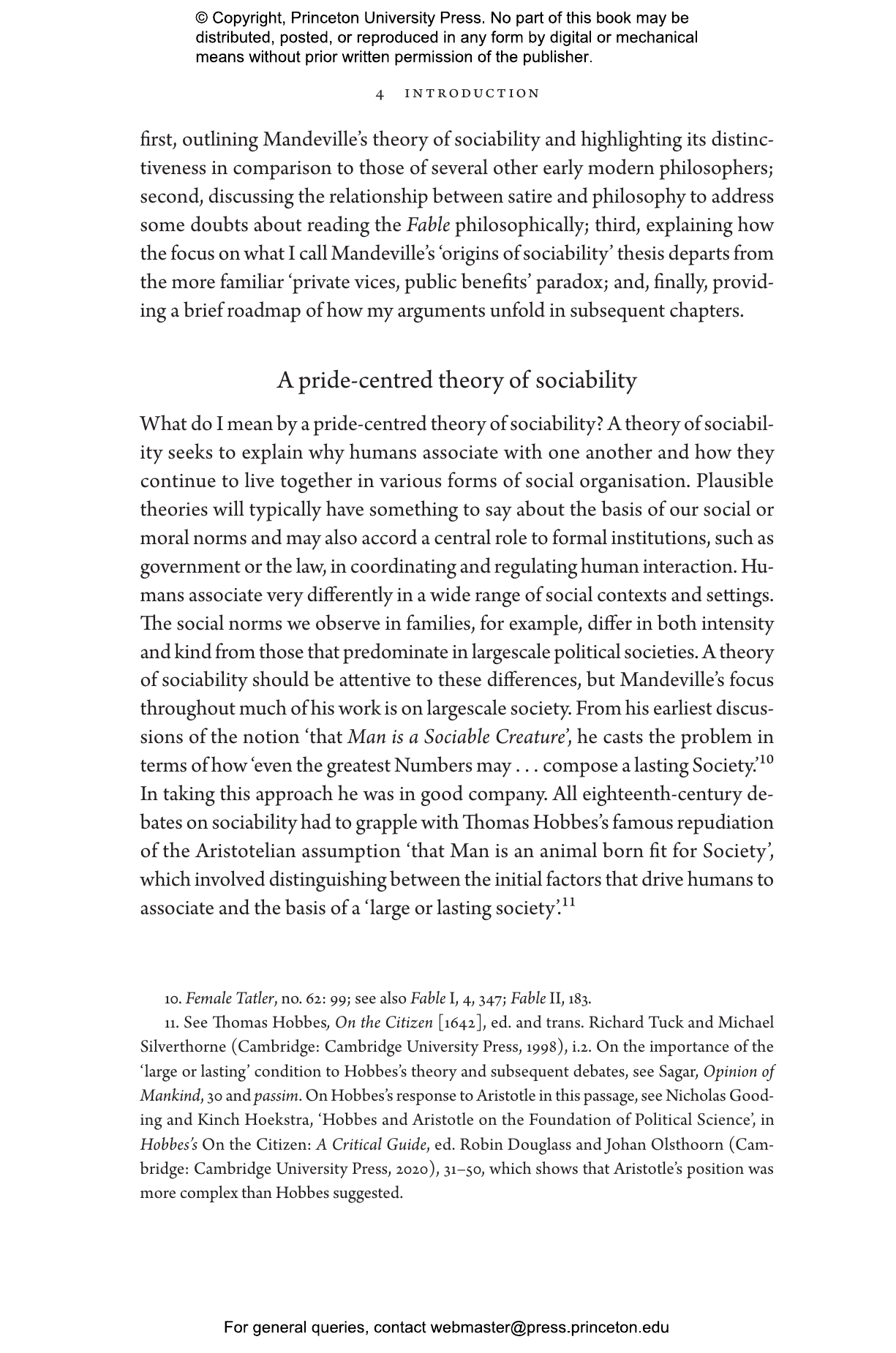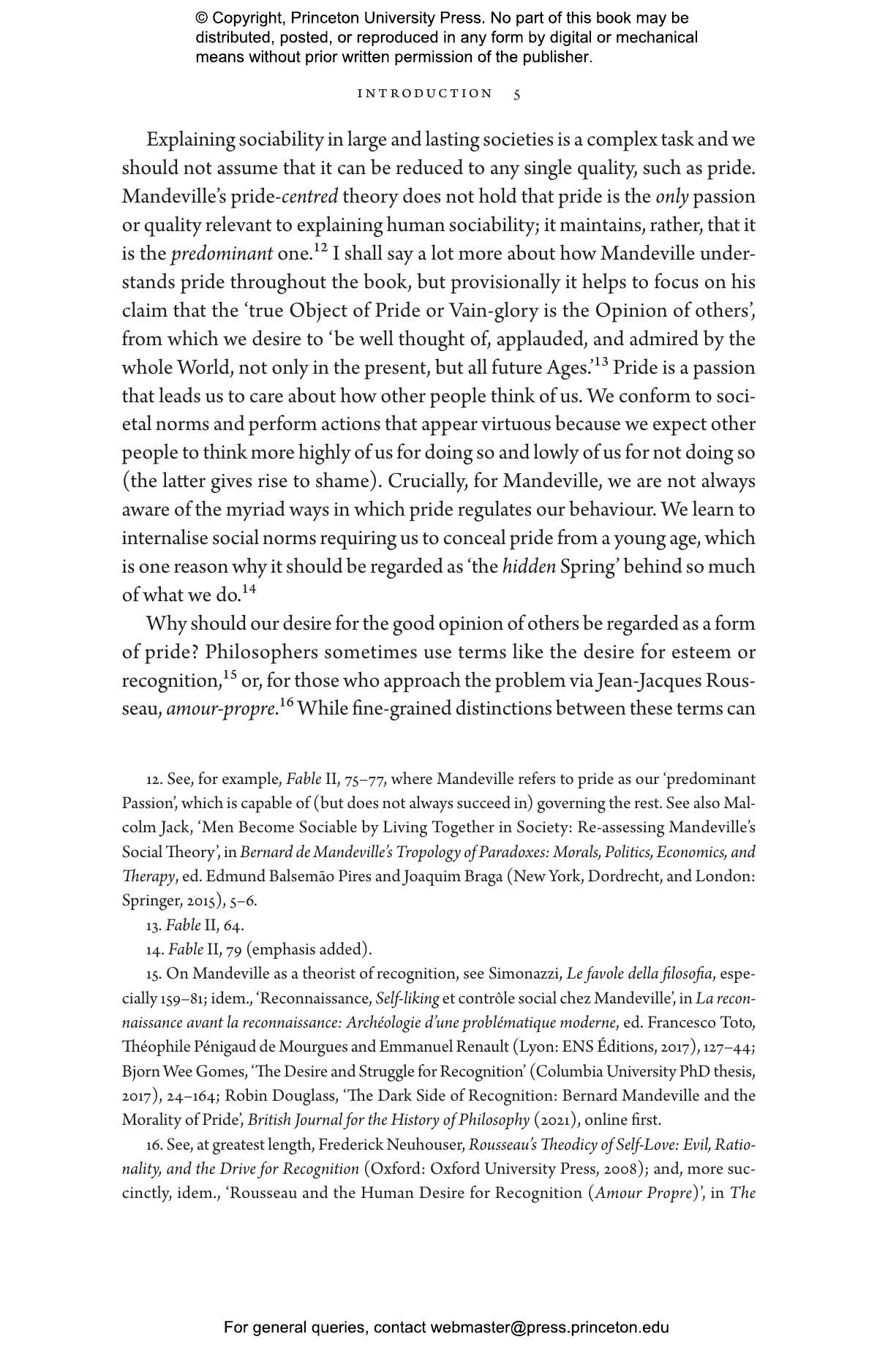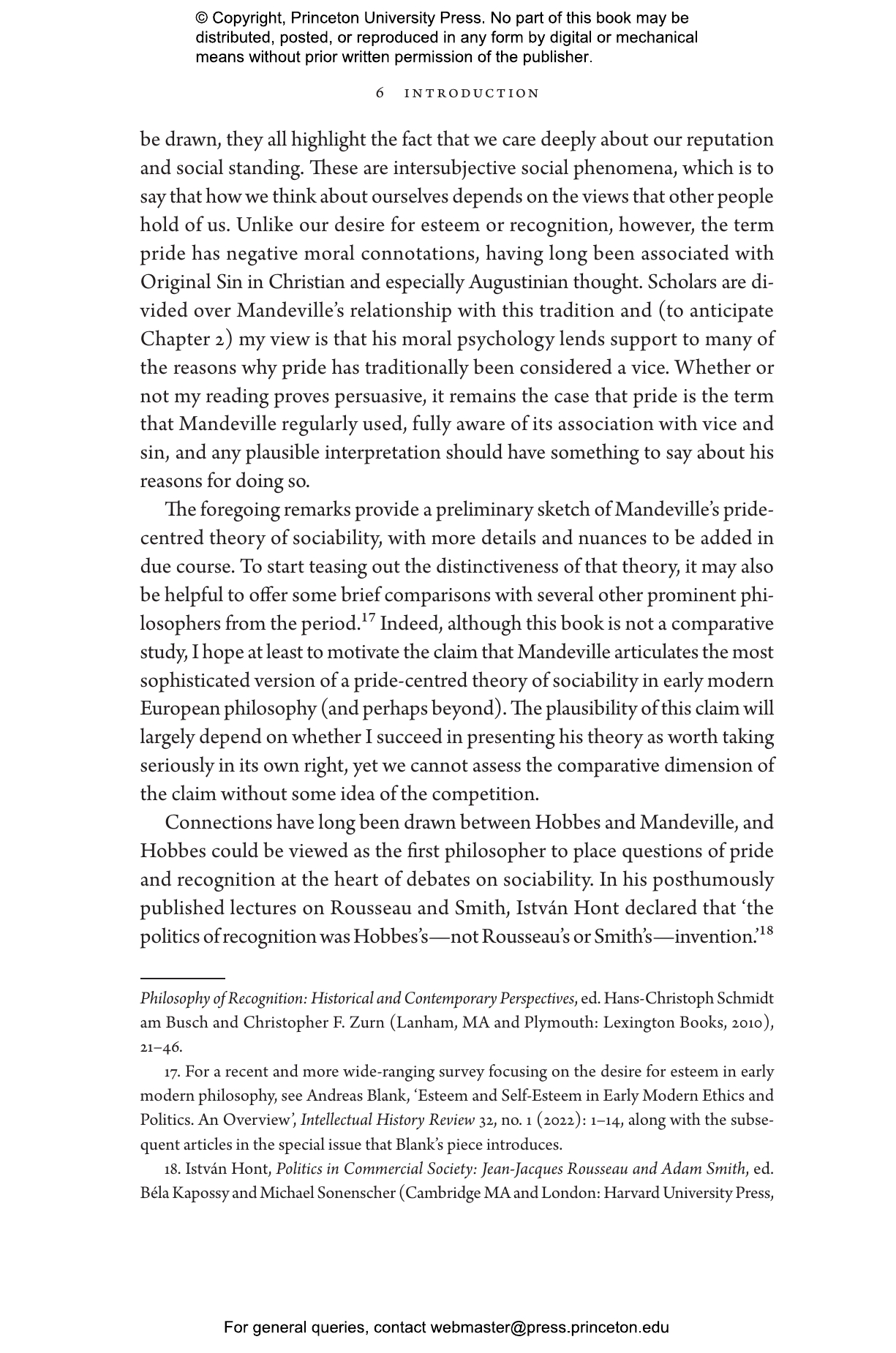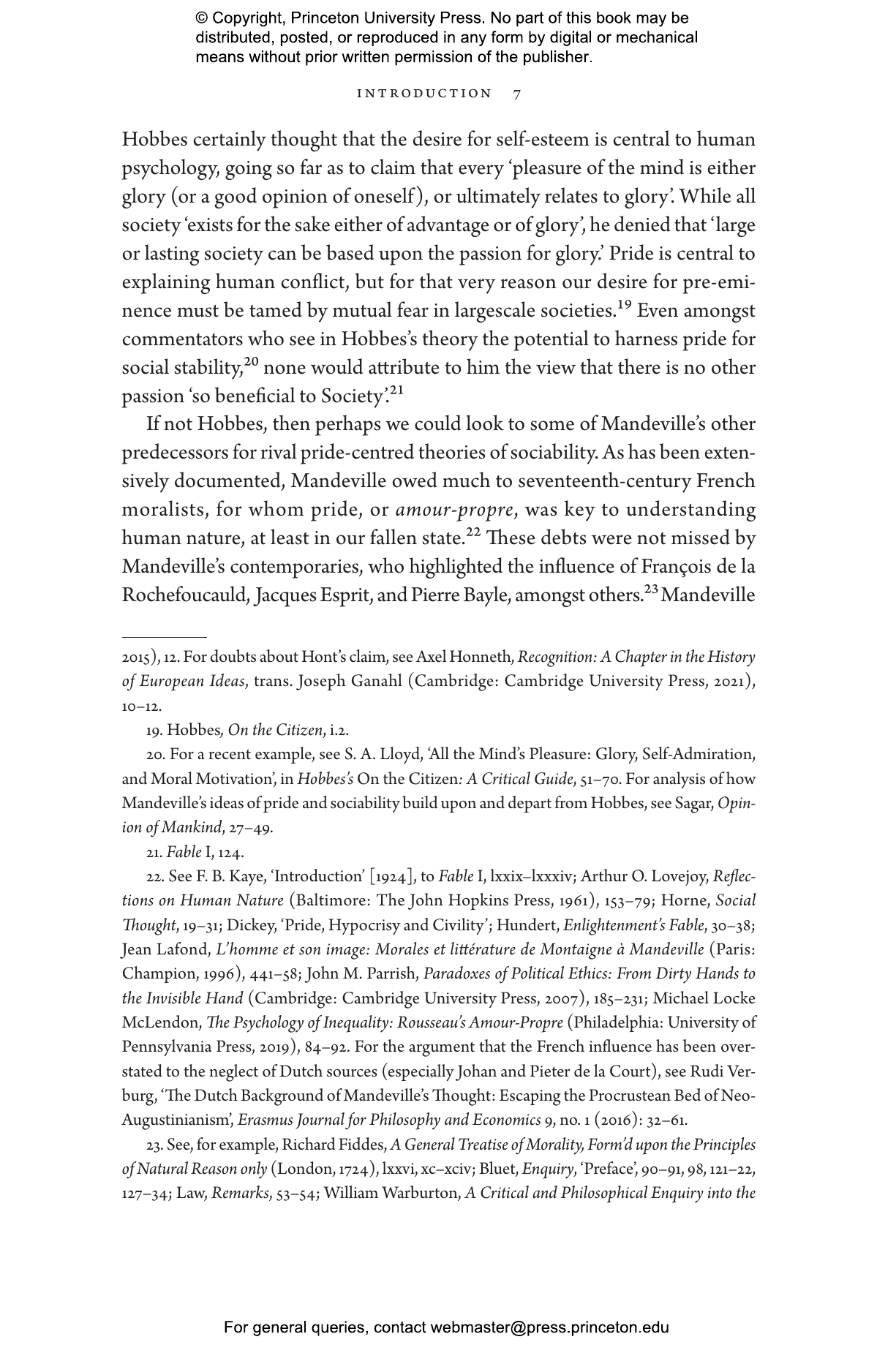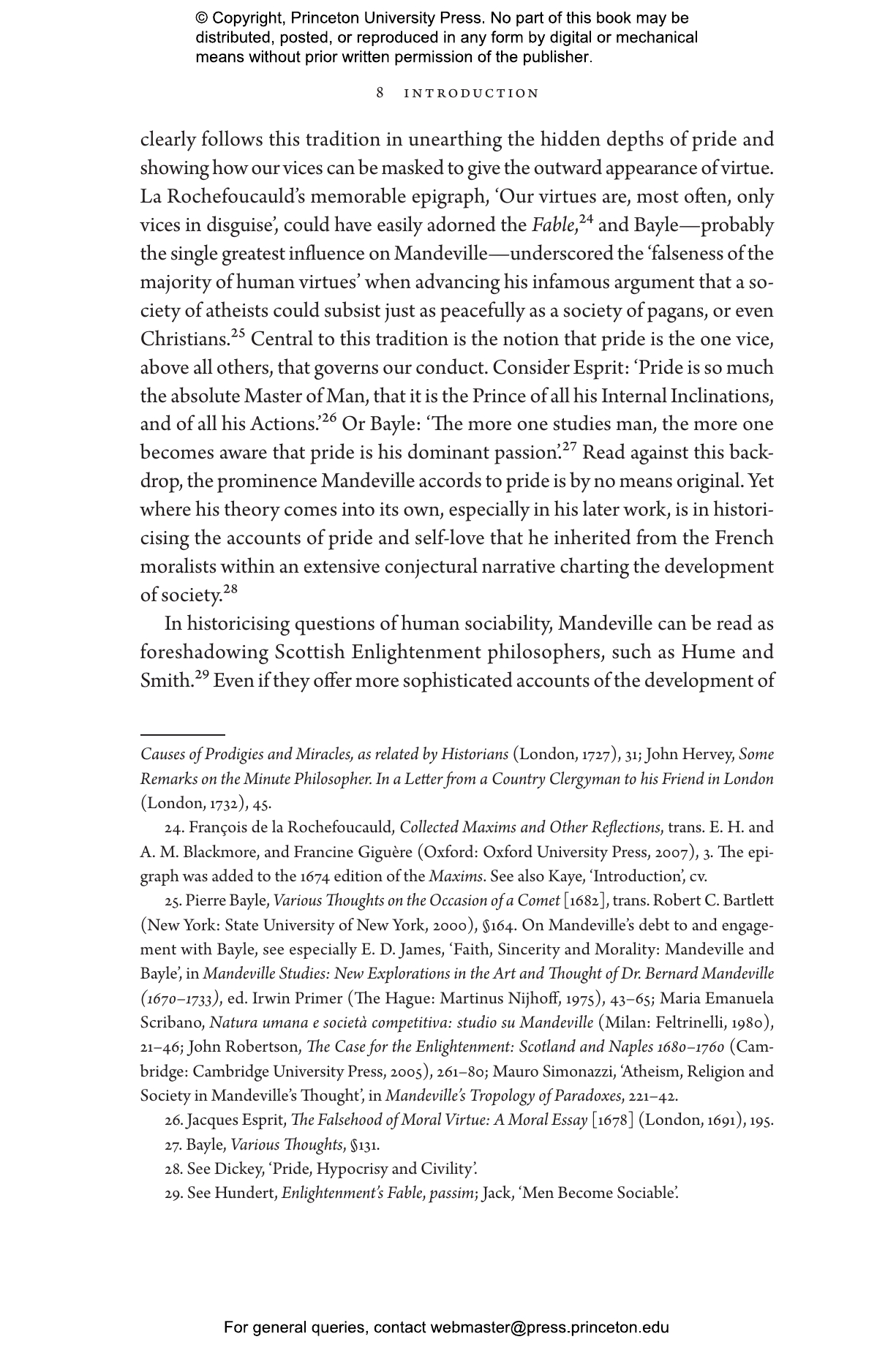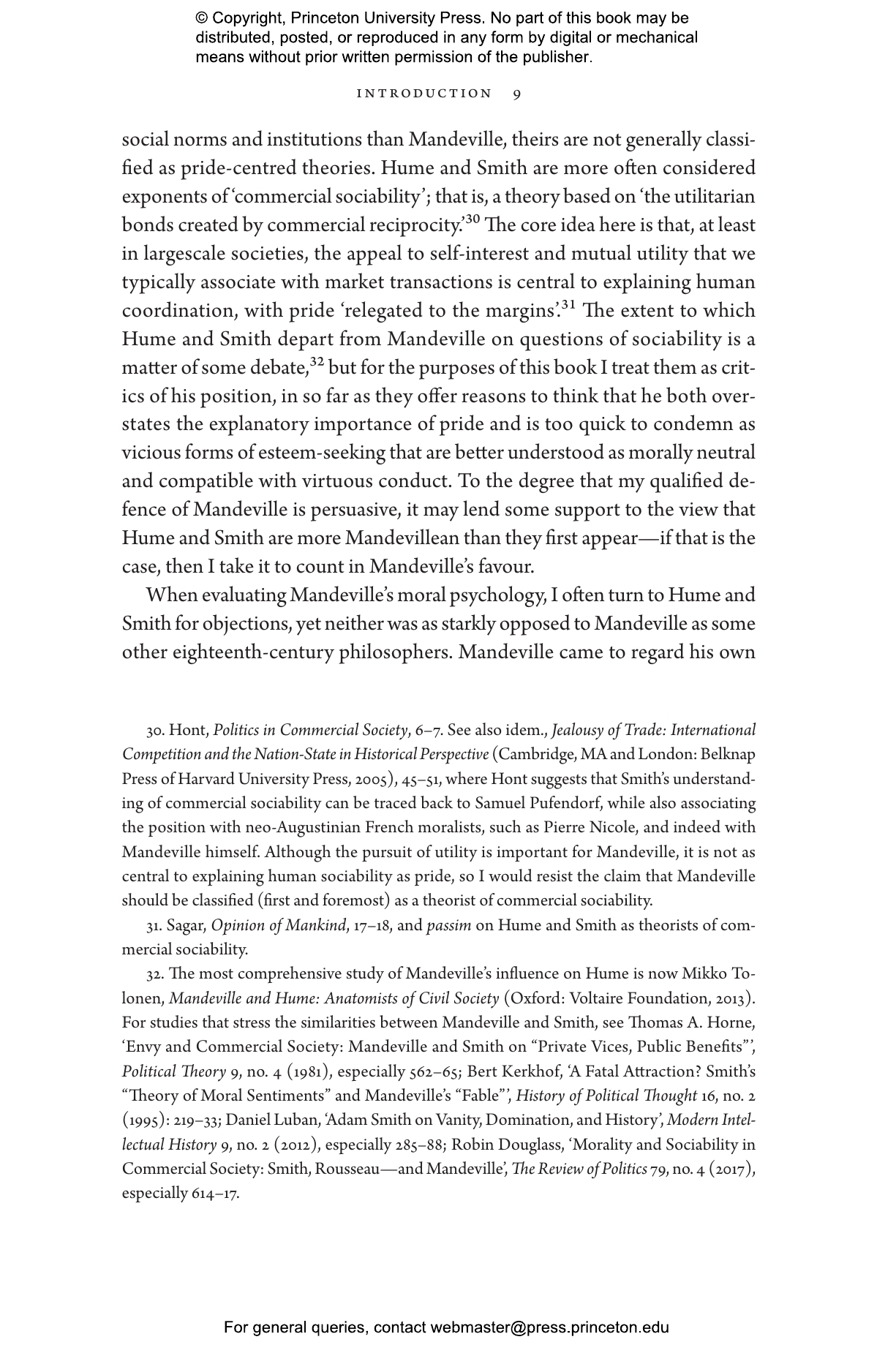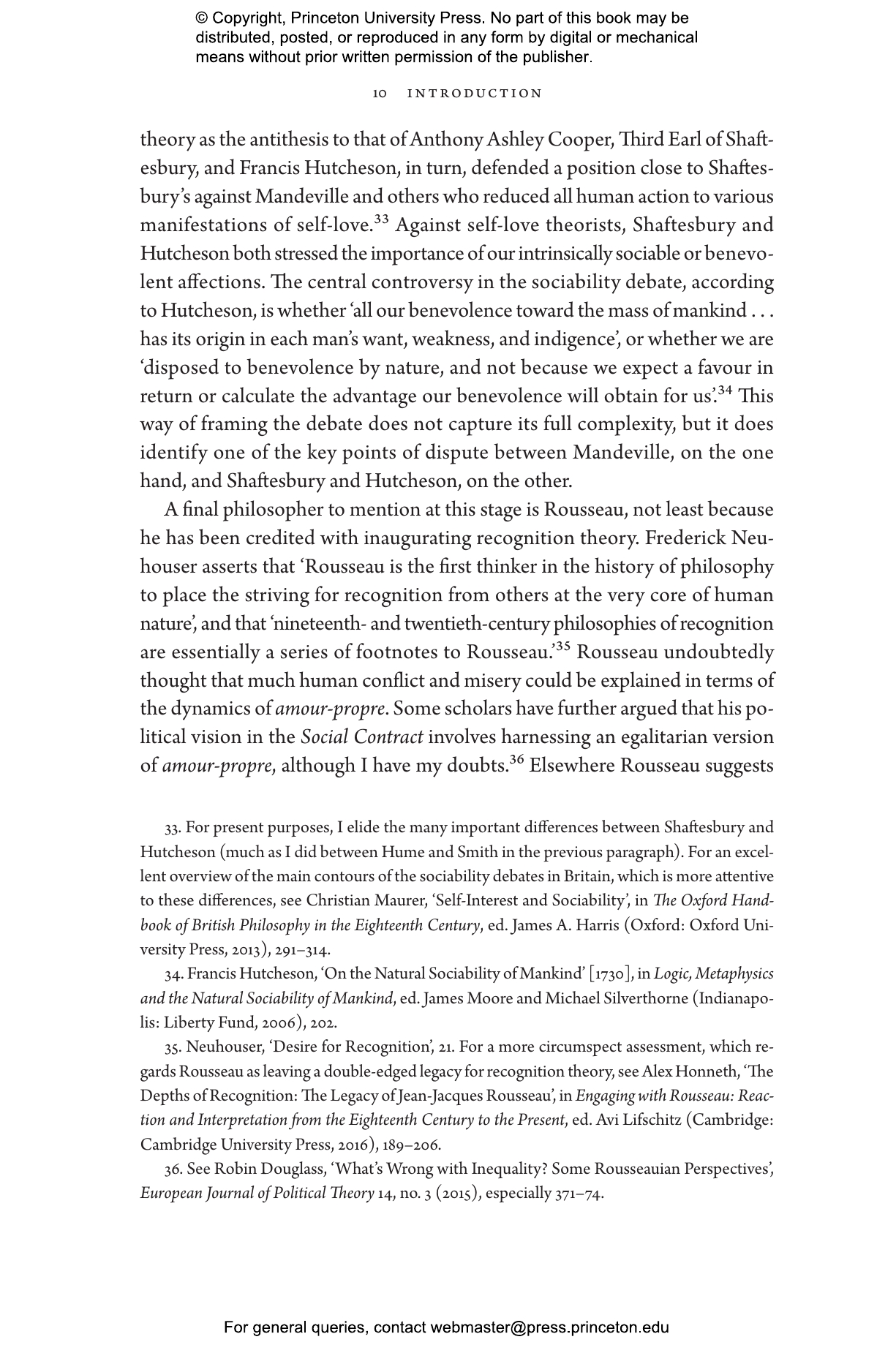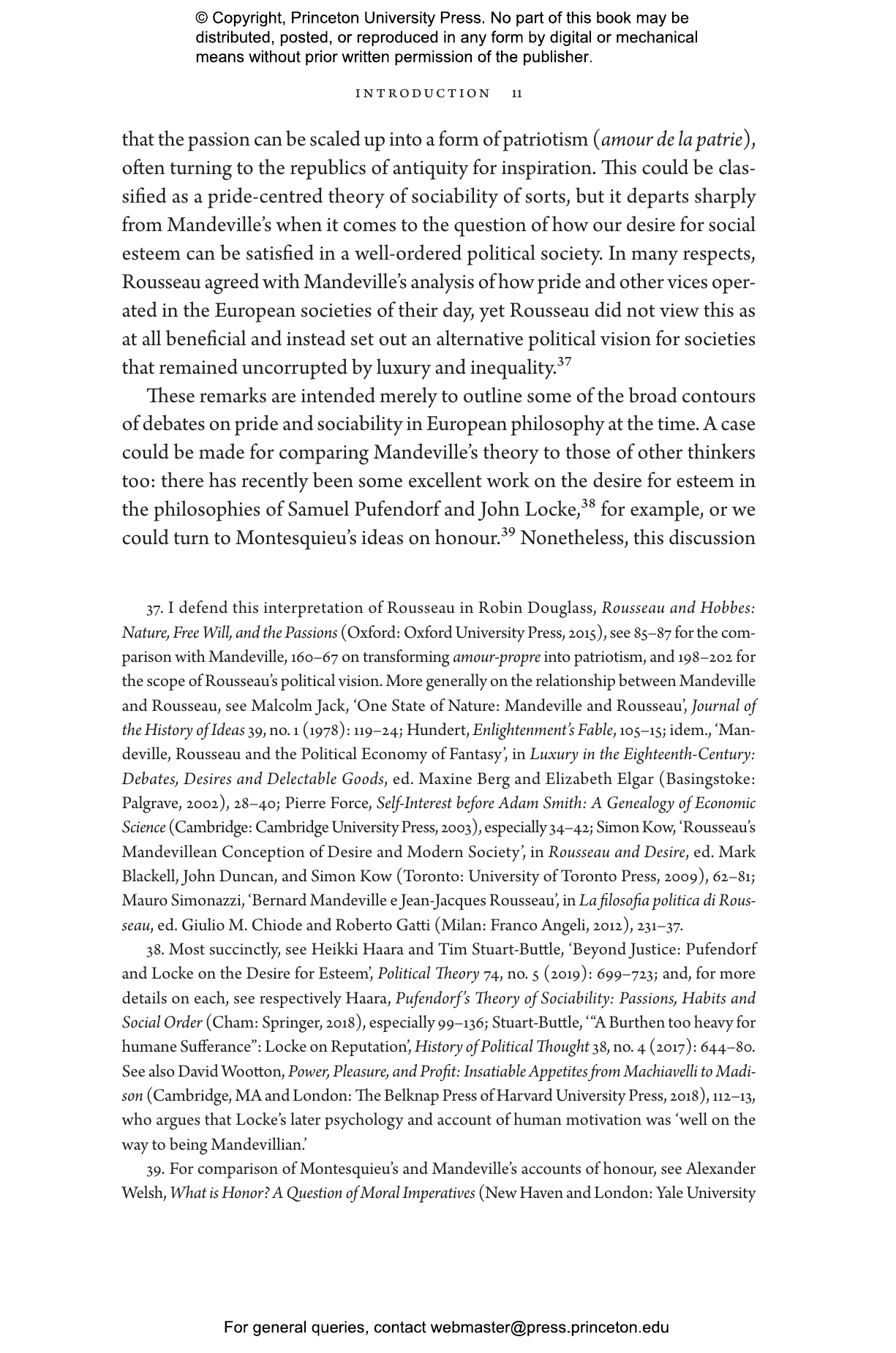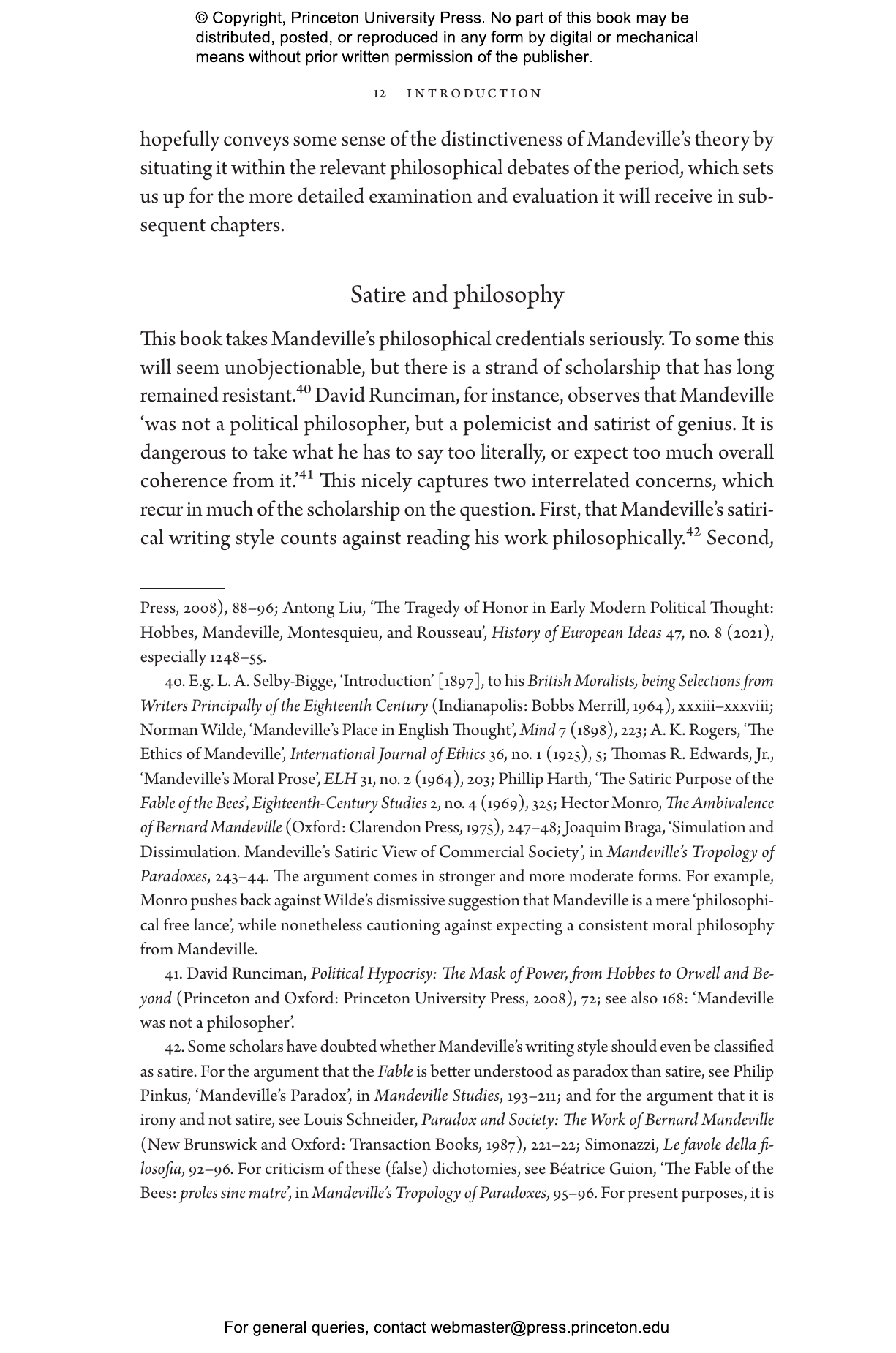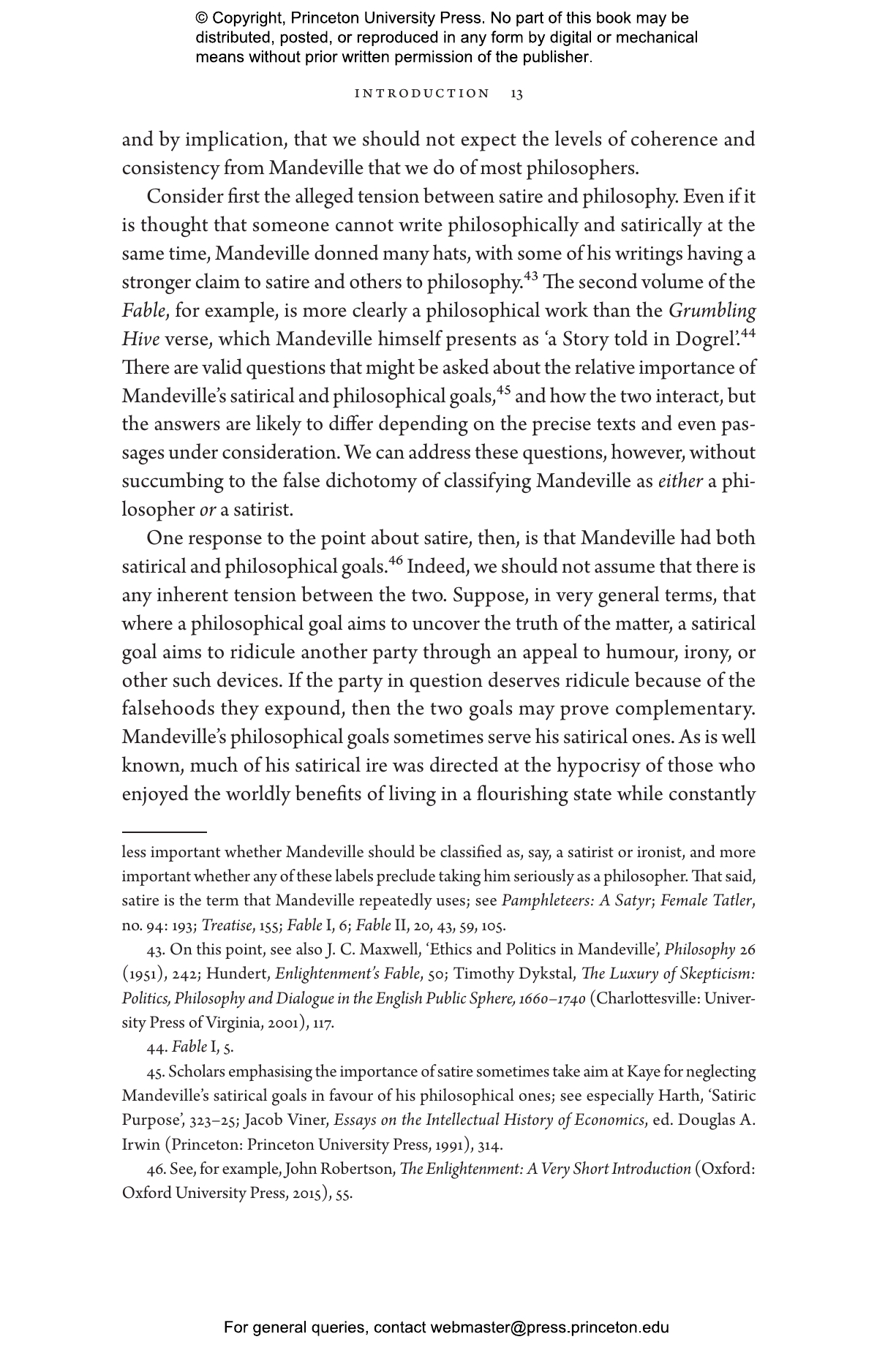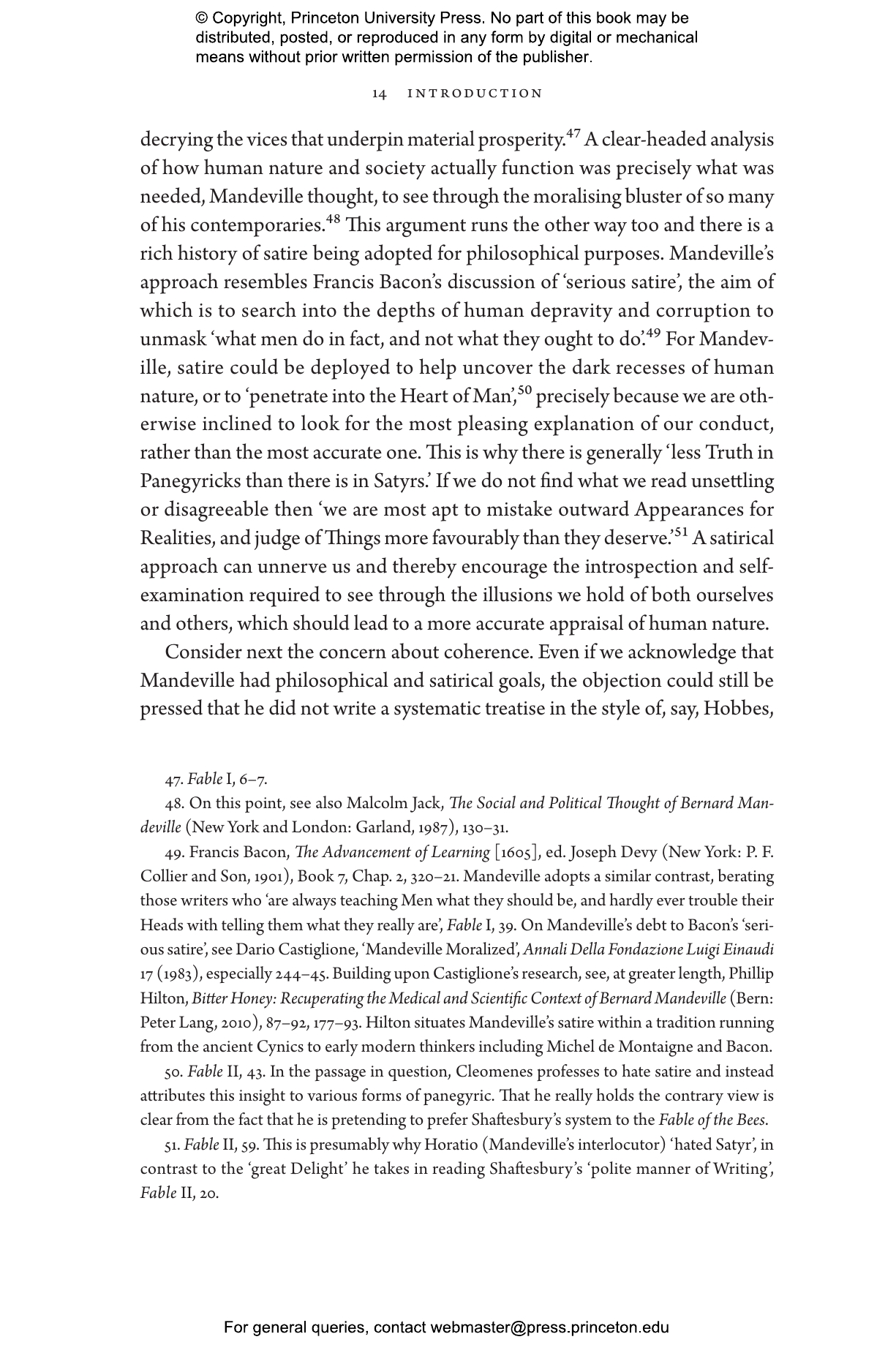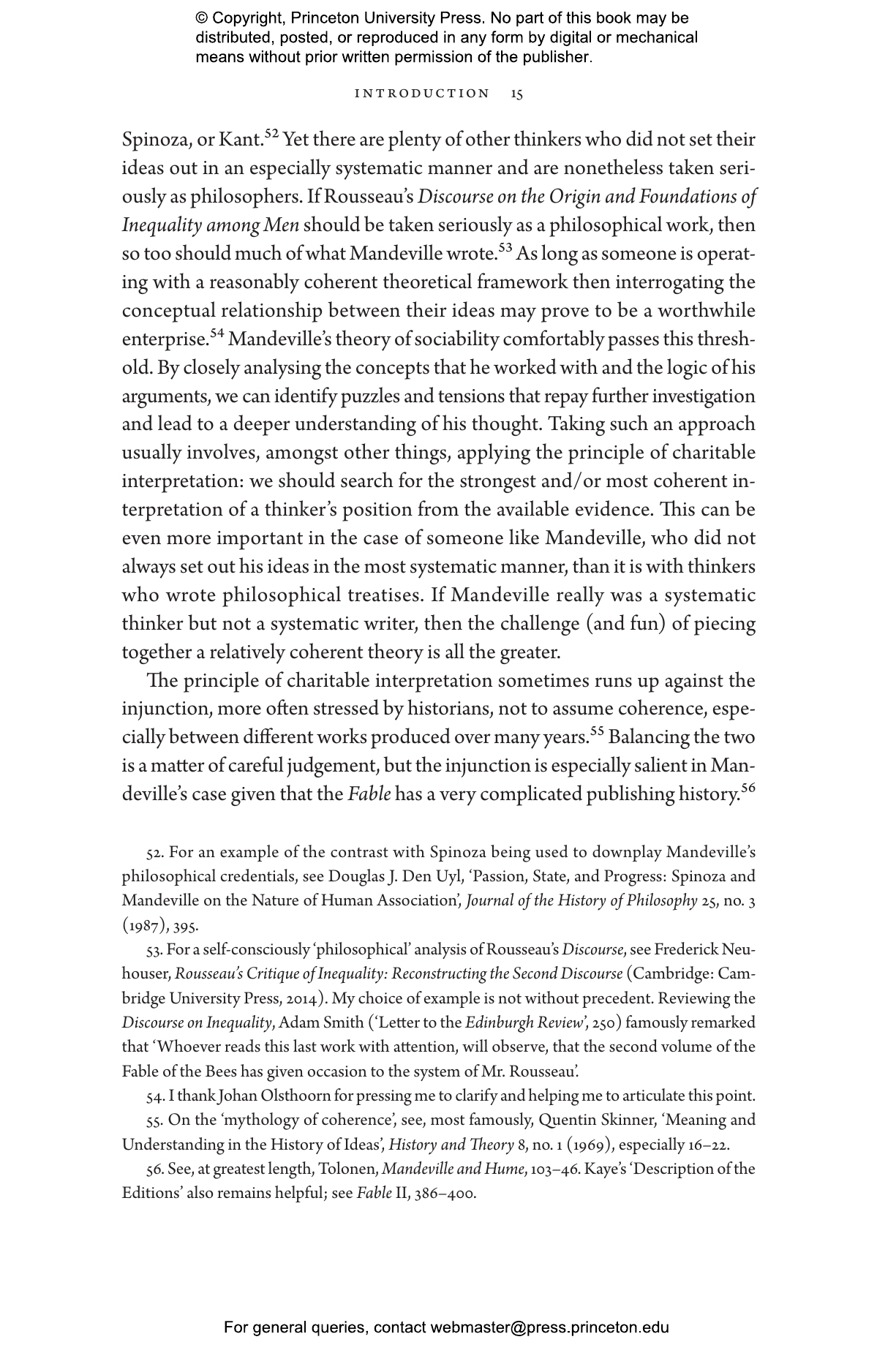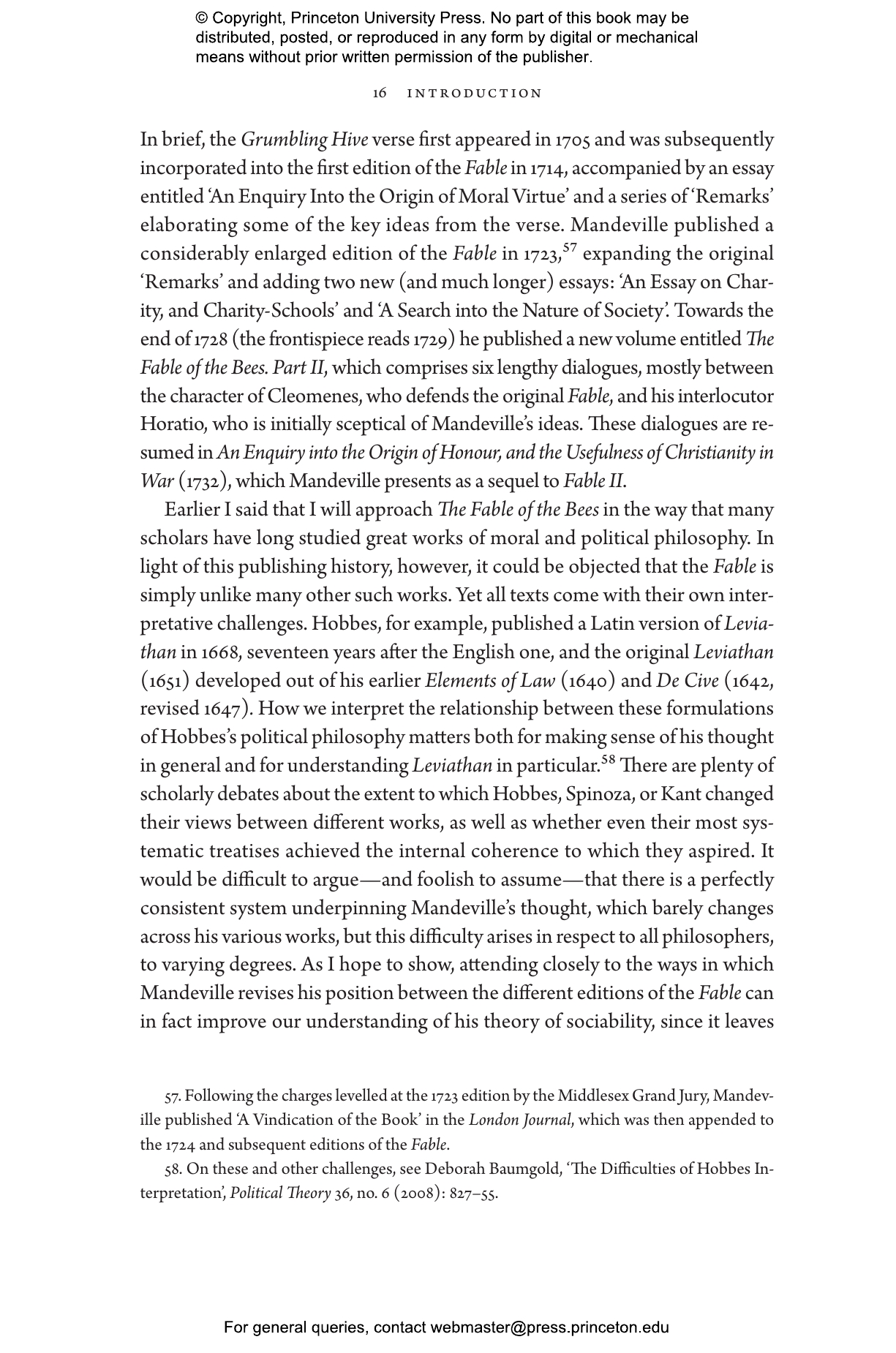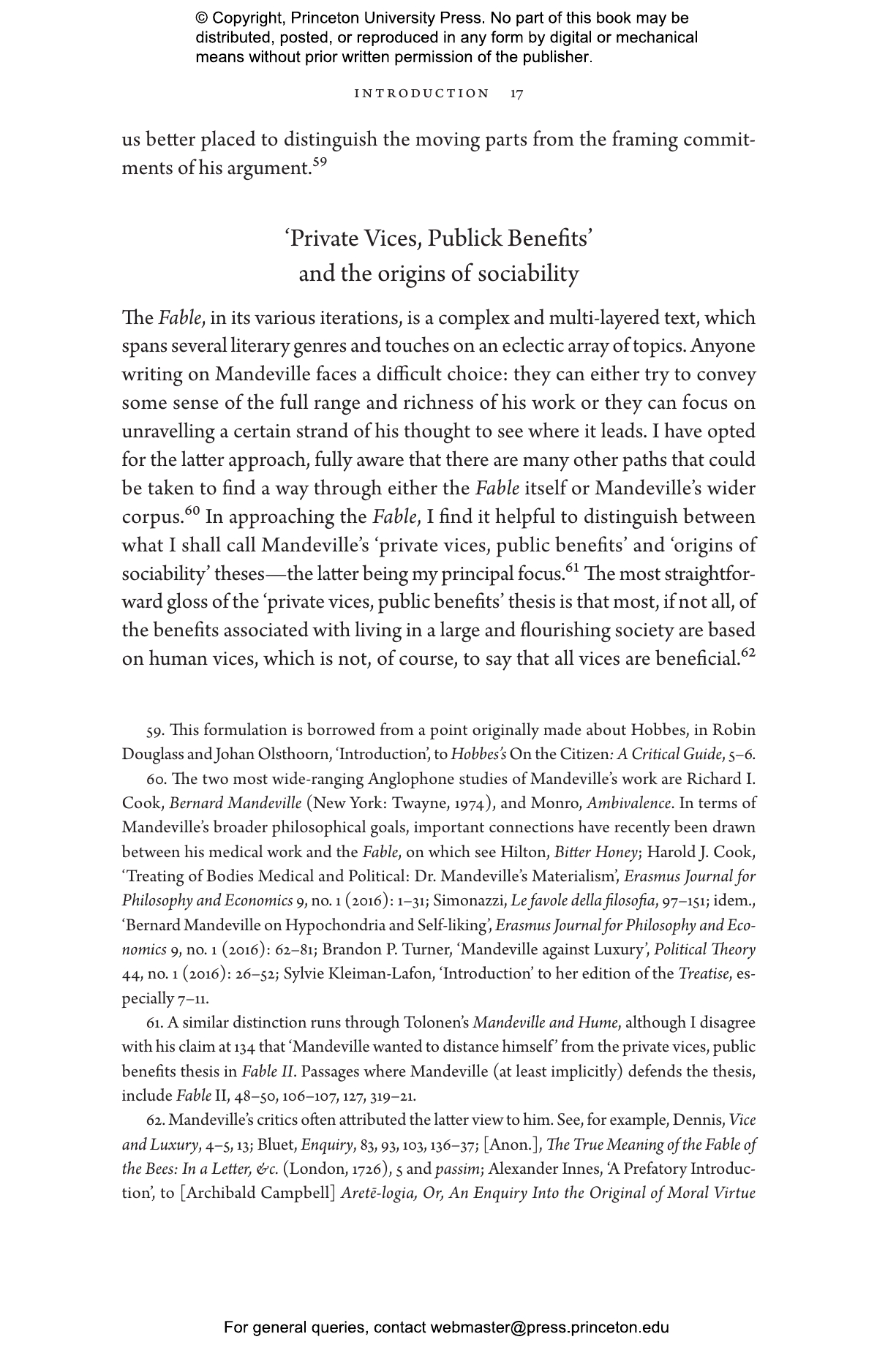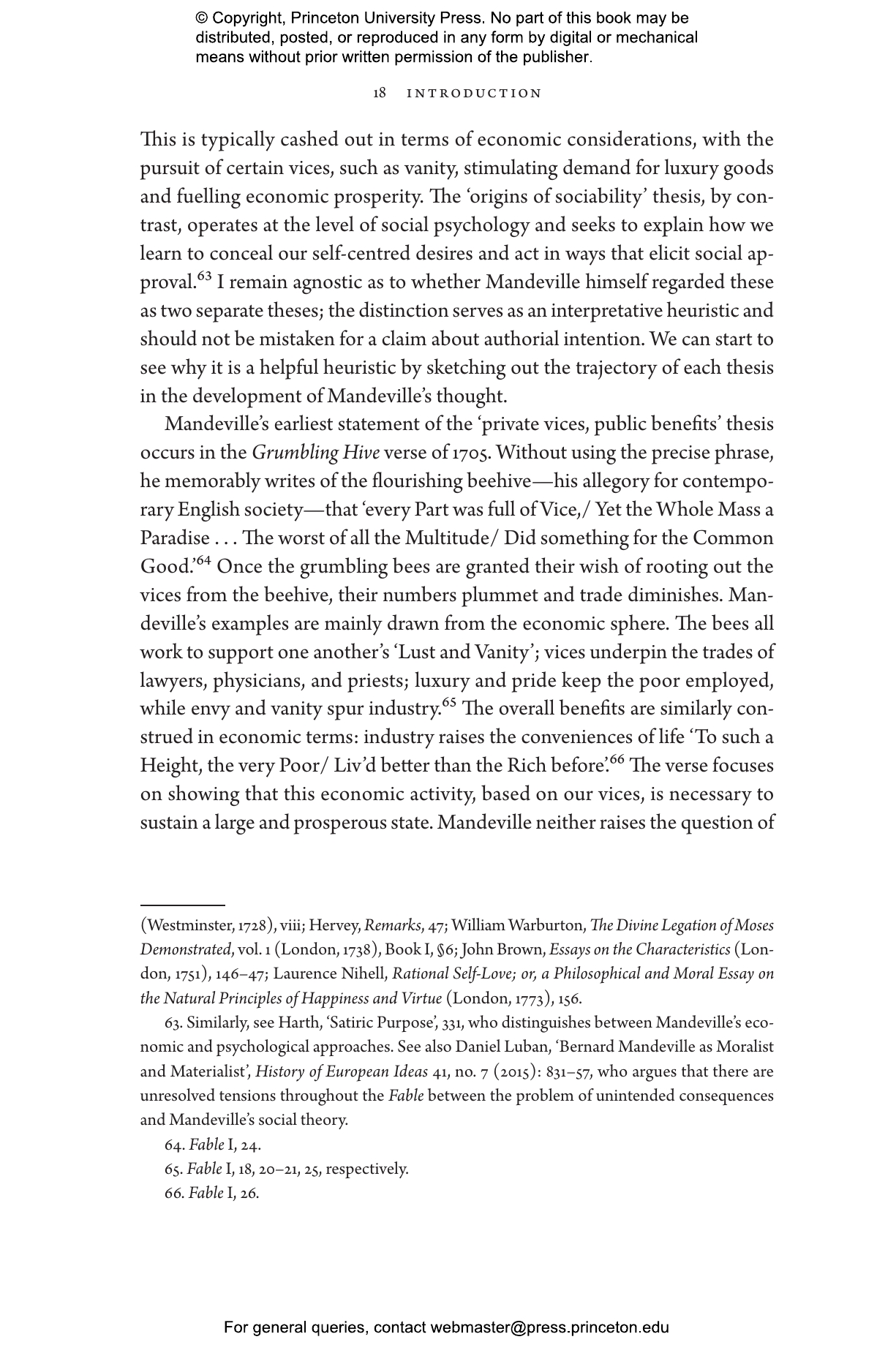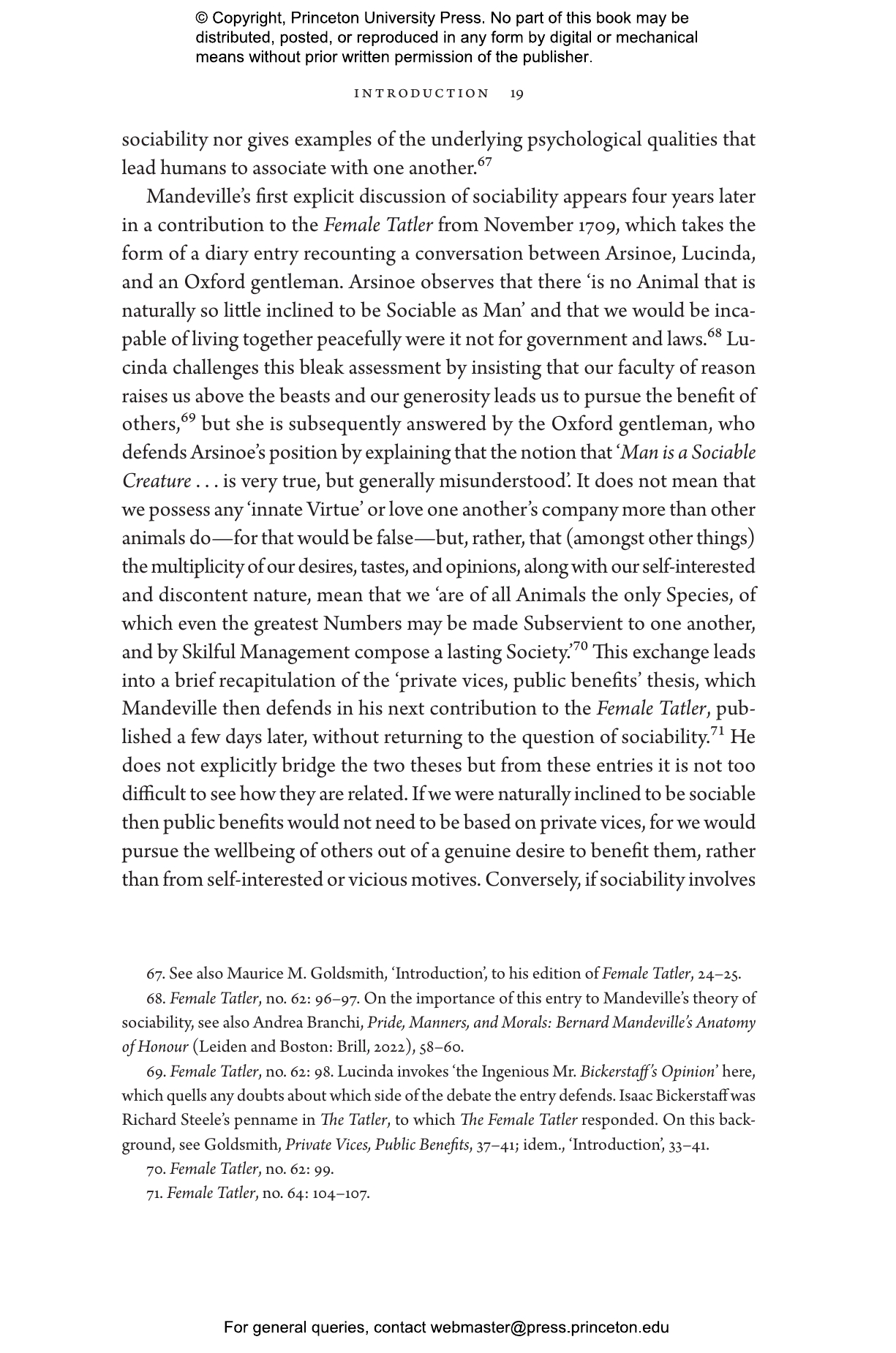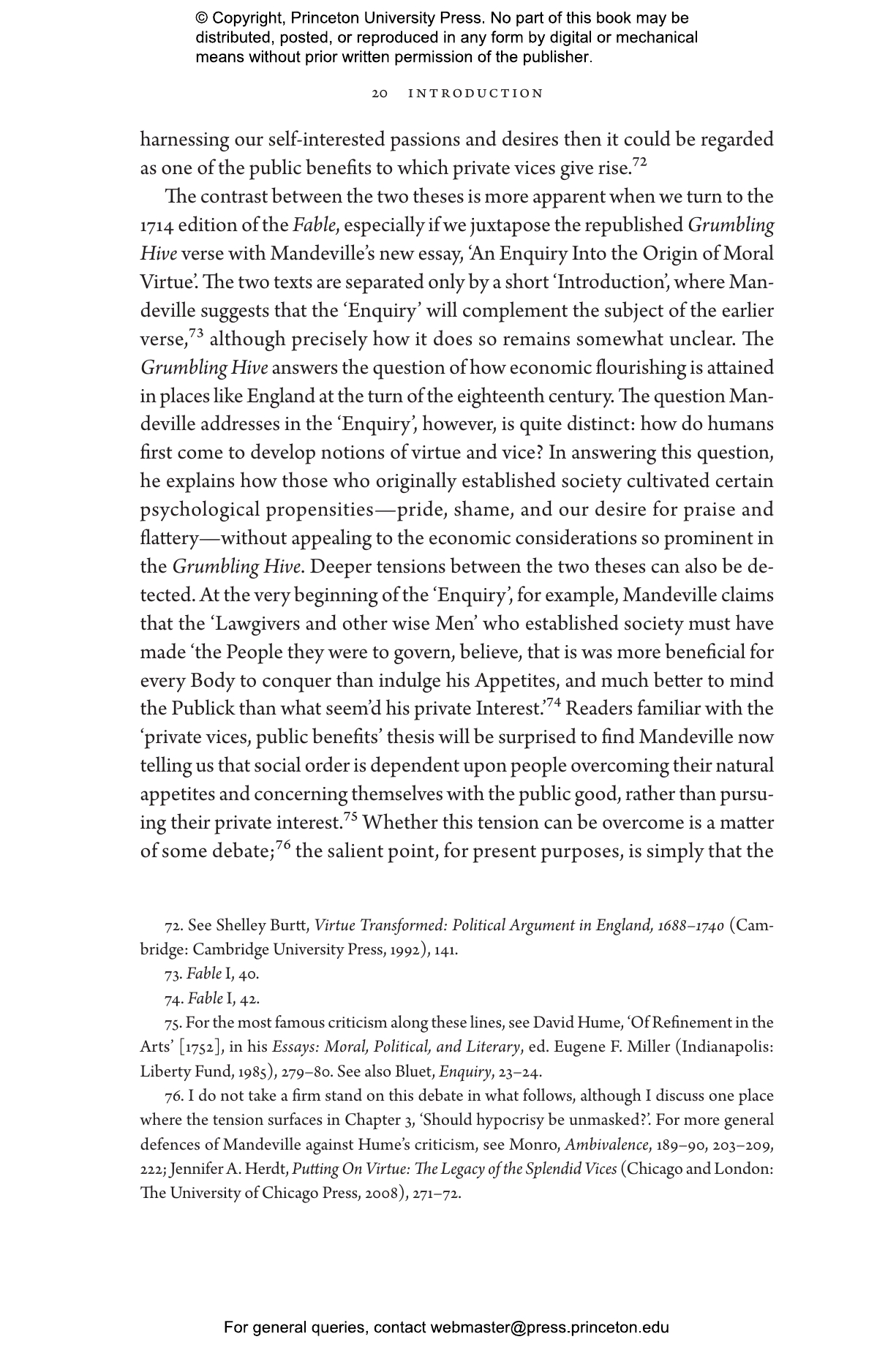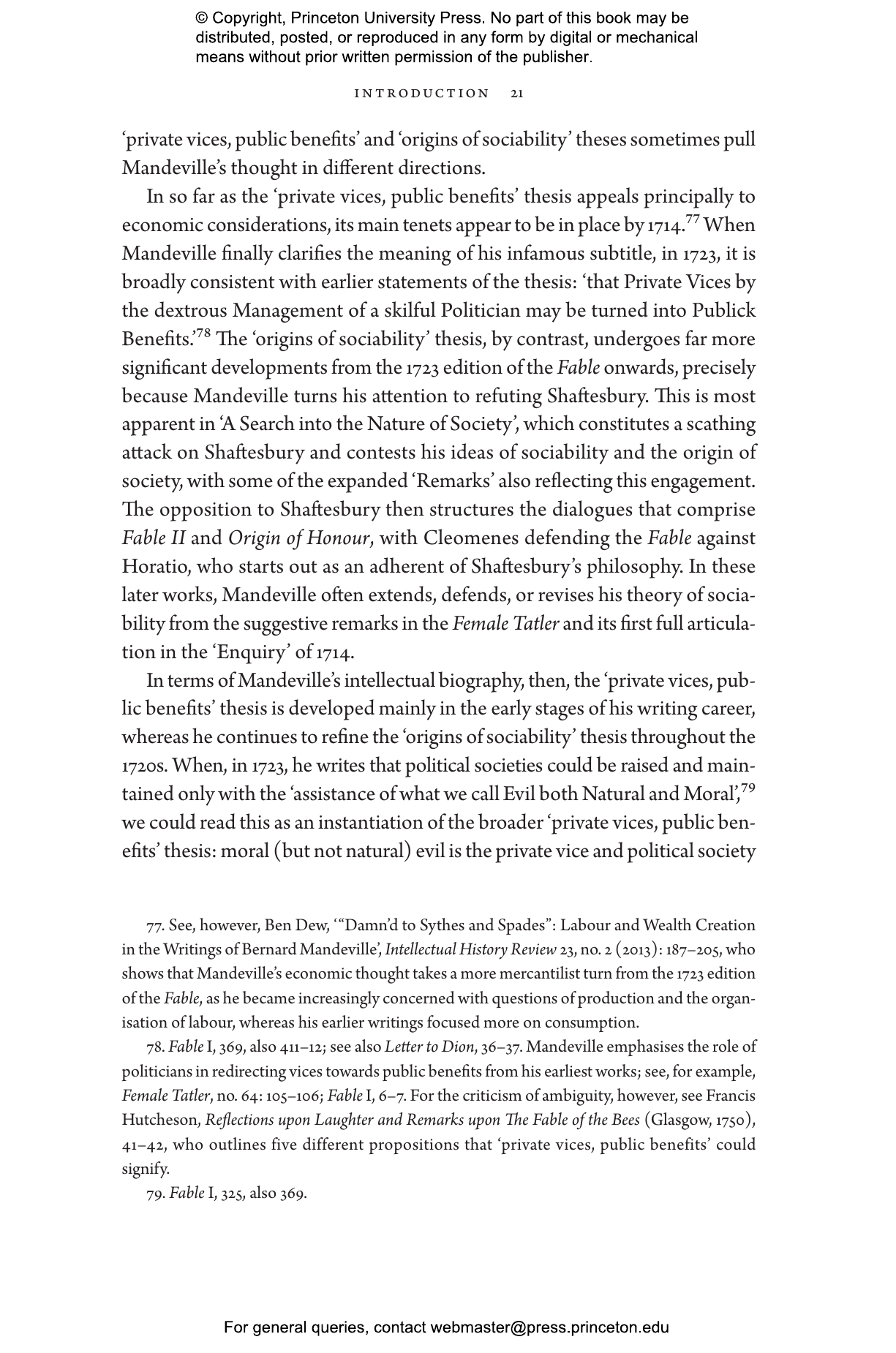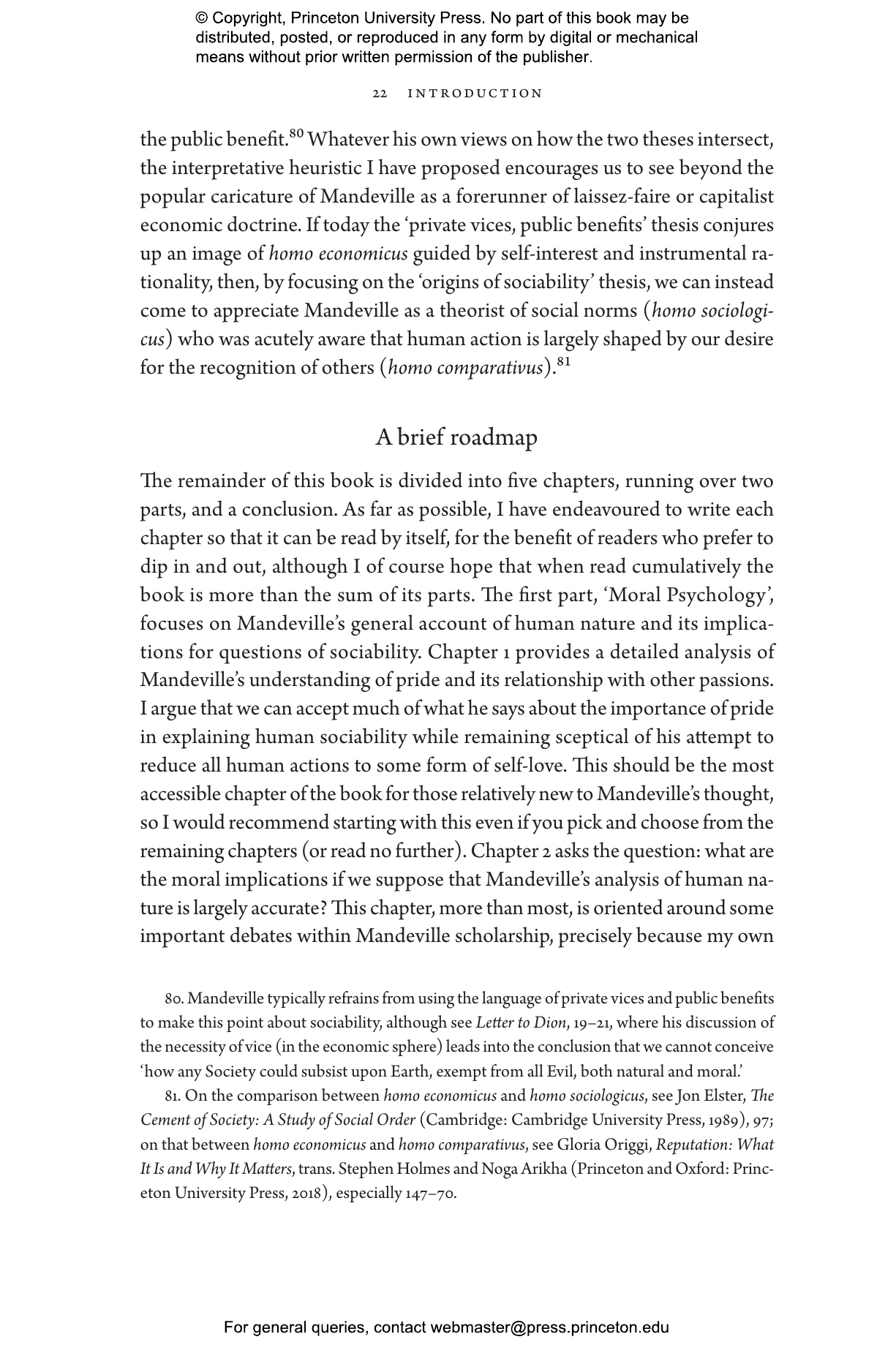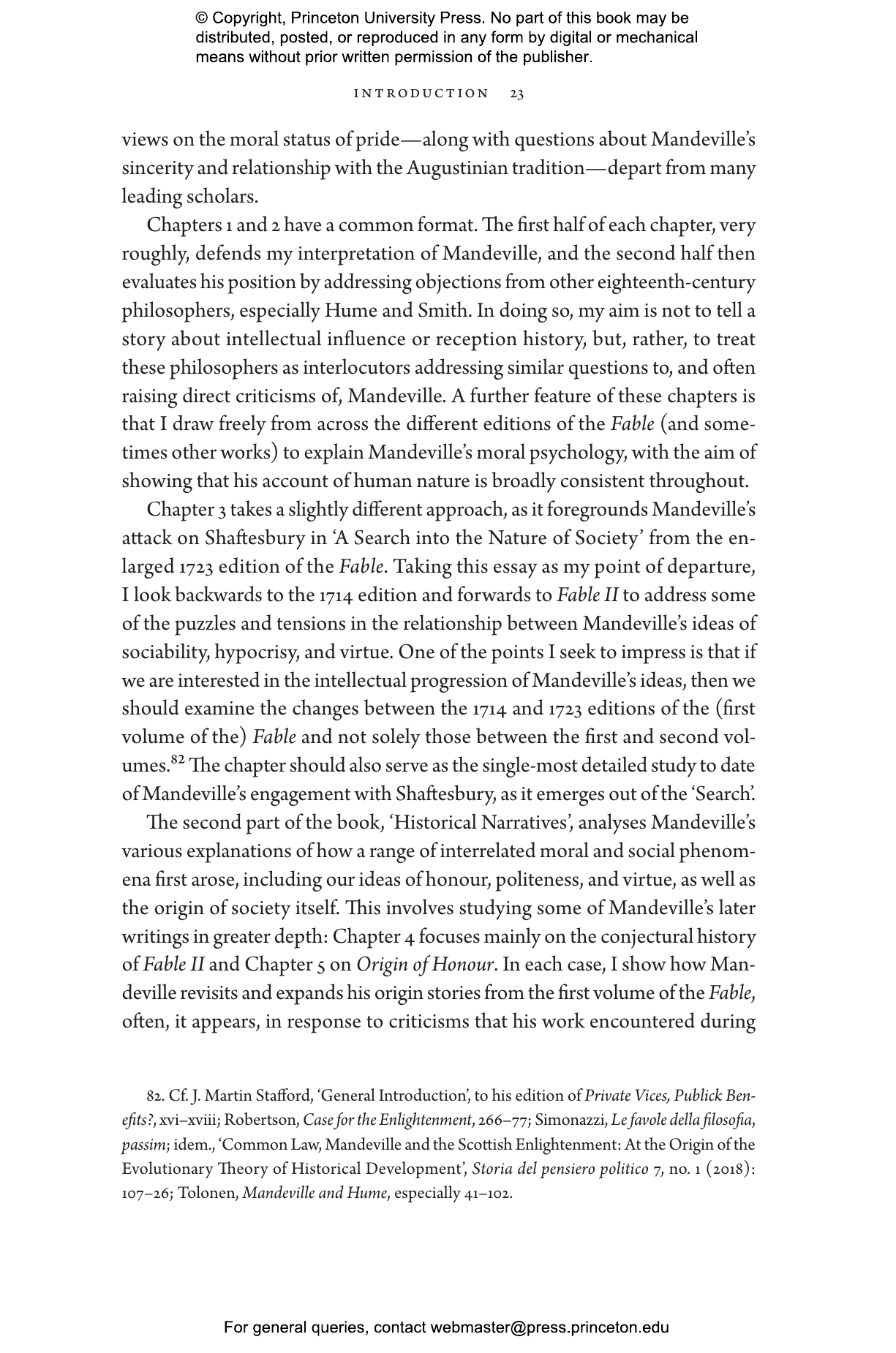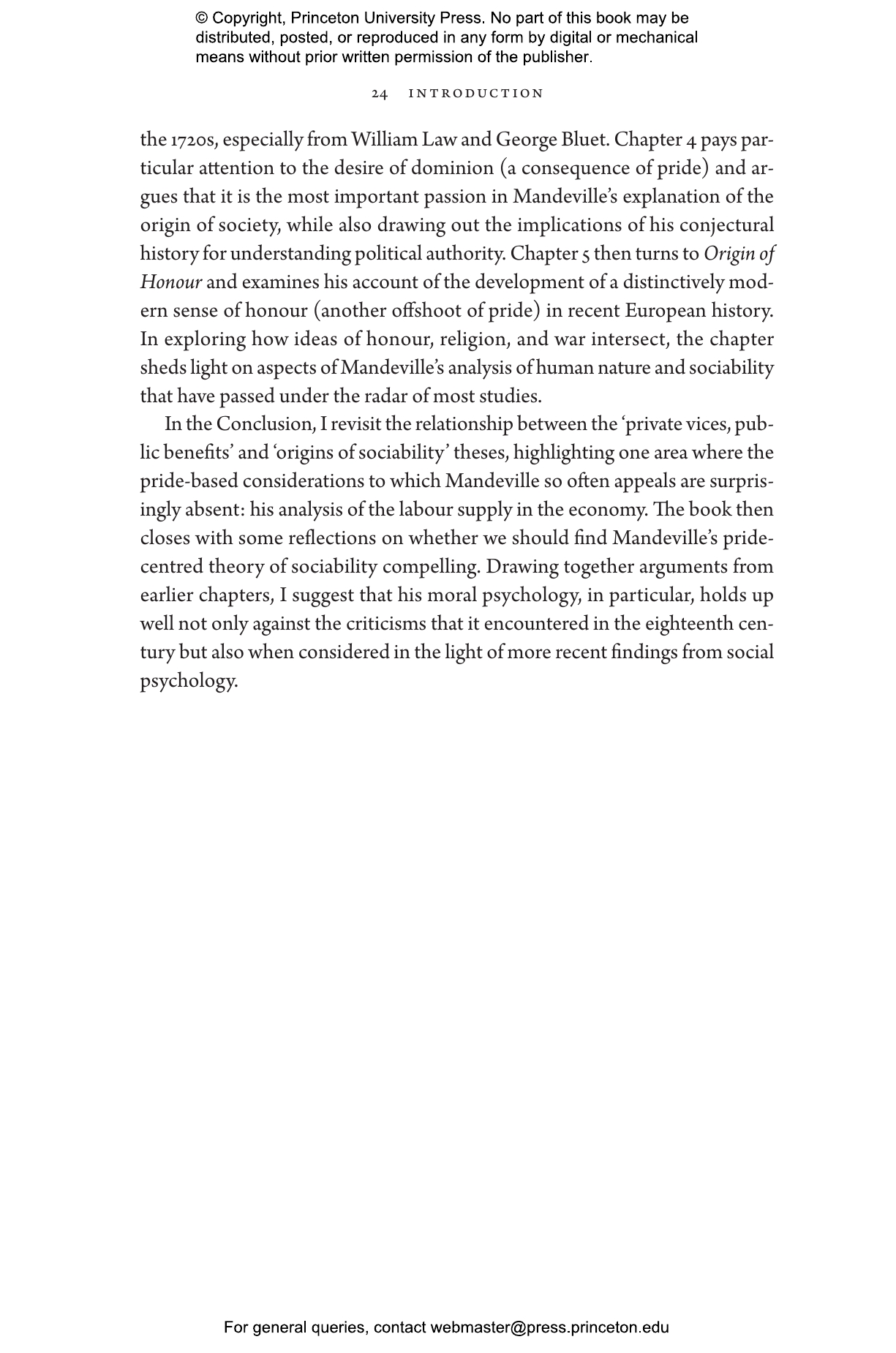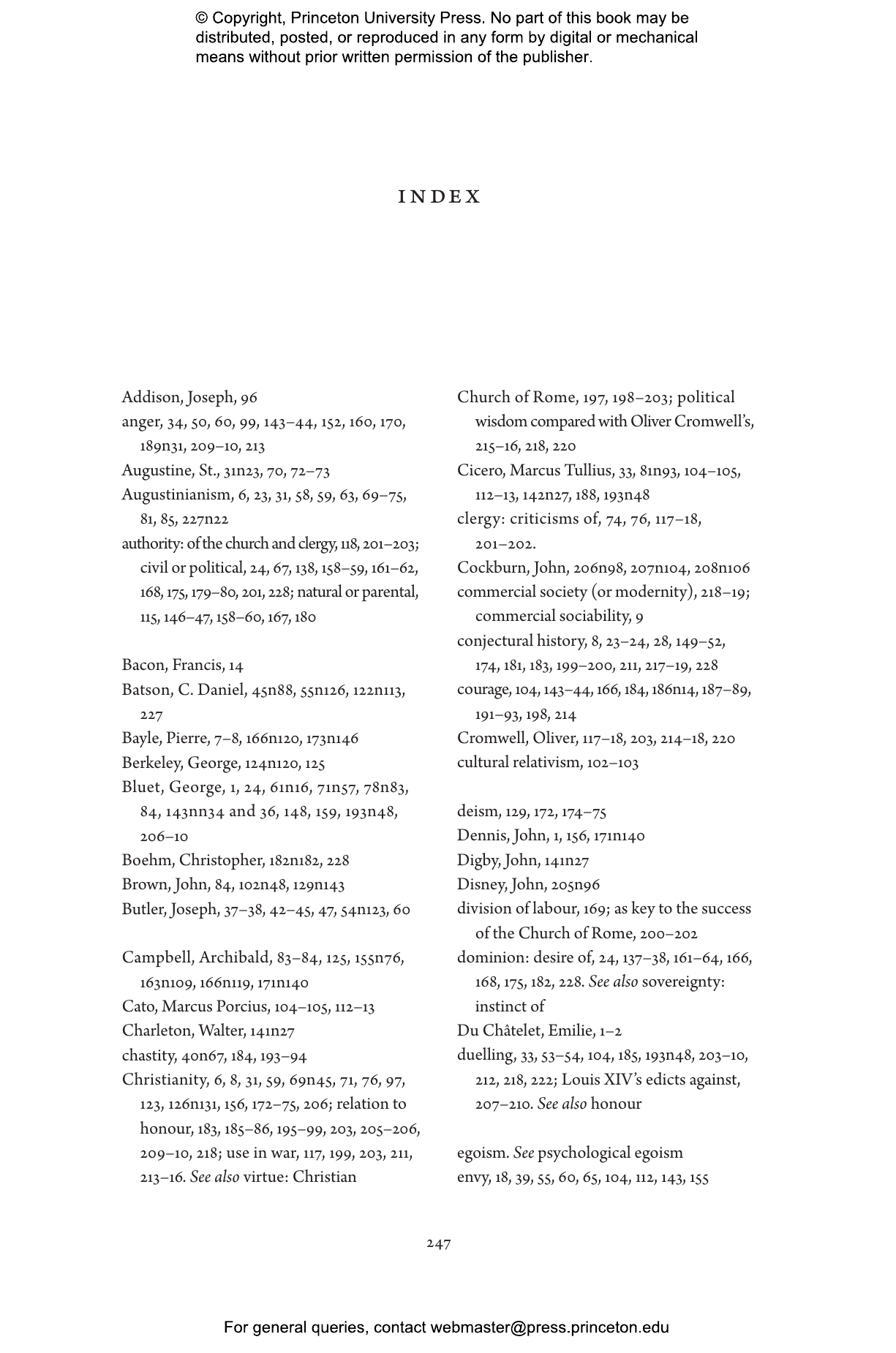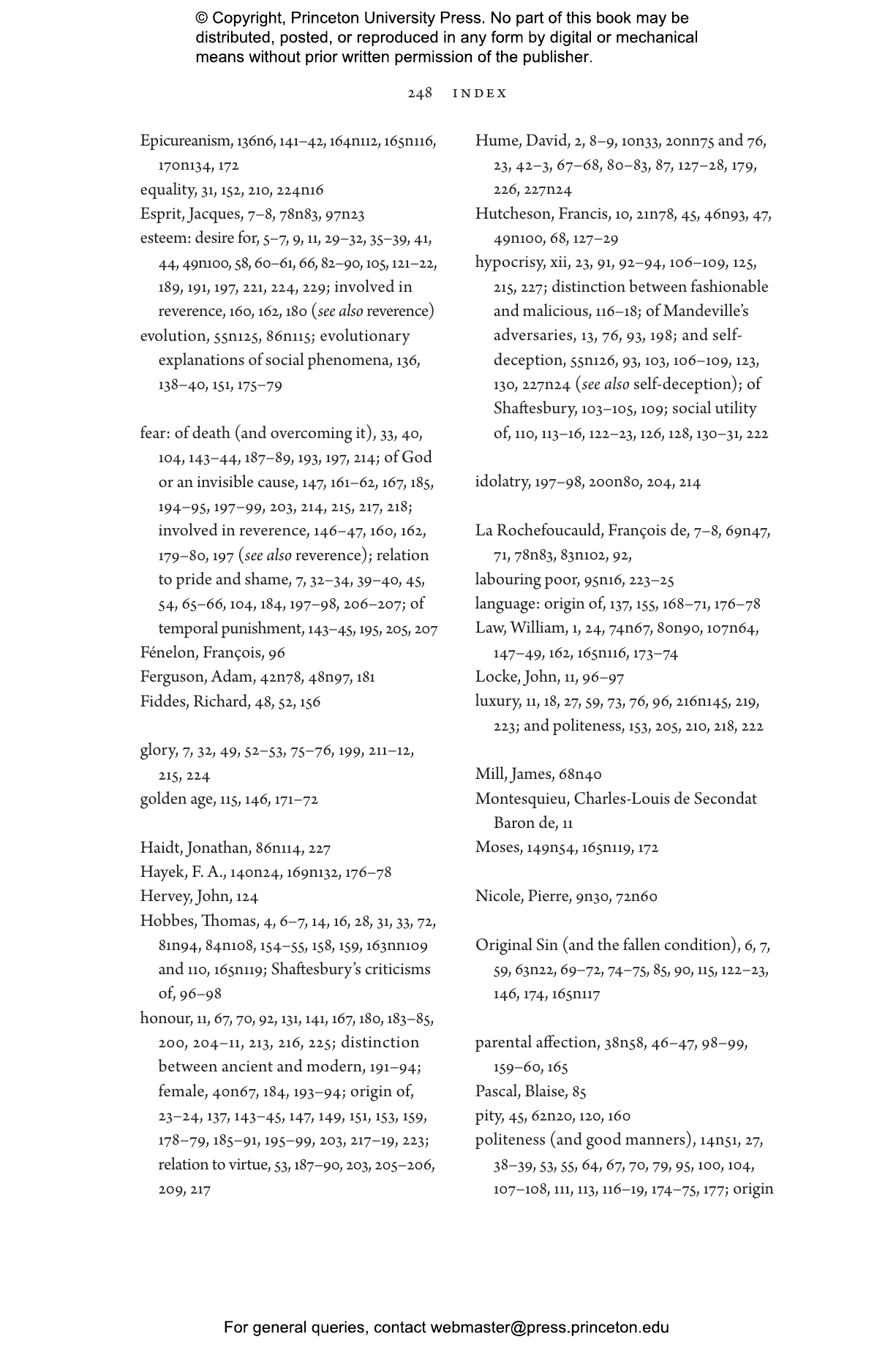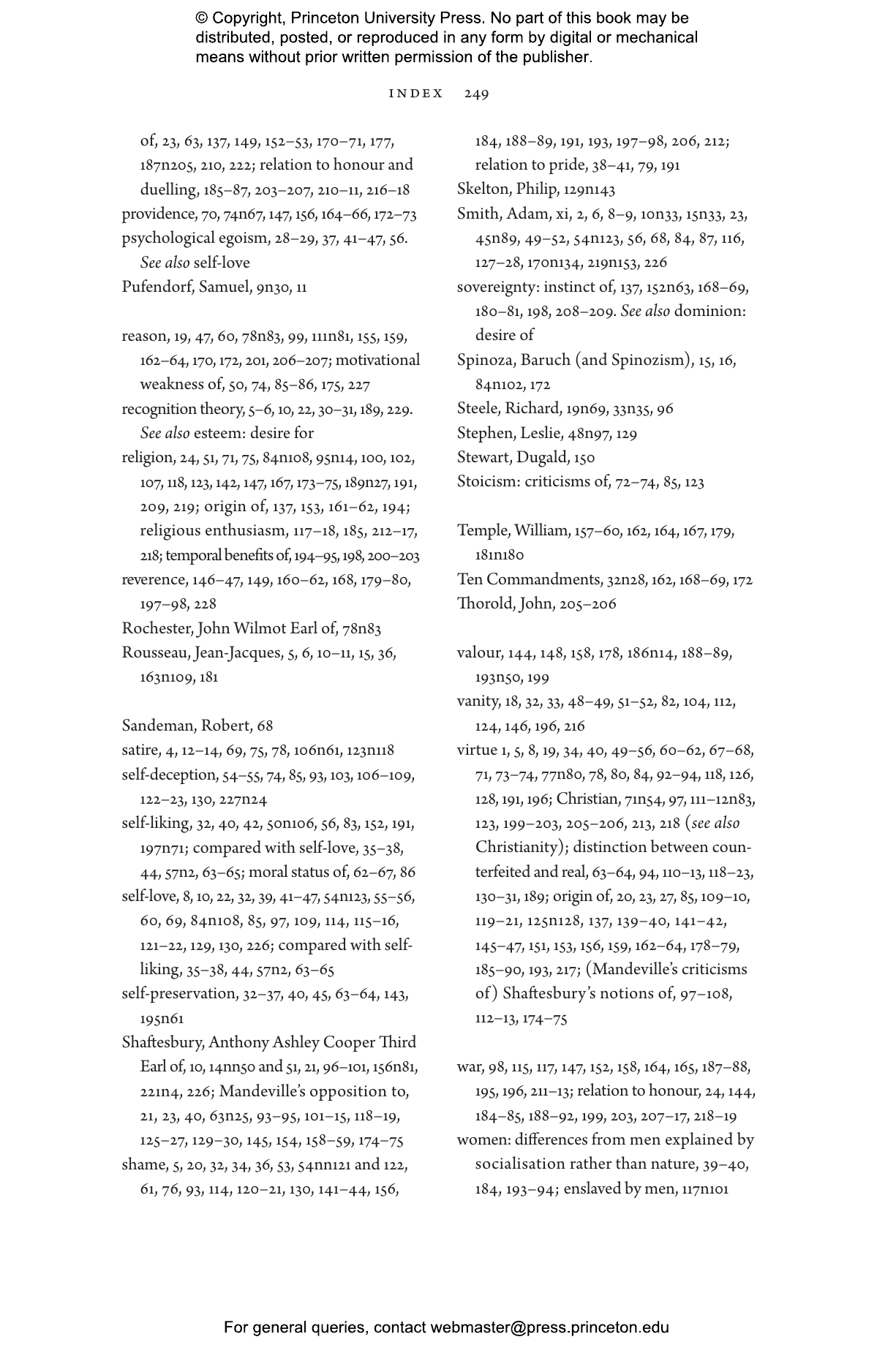Bernard Mandeville’s The Fable of the Bees outraged its eighteenth-century audience by proclaiming that private vices lead to public prosperity. Today the work is best known as an early iteration of laissez-faire capitalism. In this book, Robin Douglass looks beyond the notoriety of Mandeville’s great work to reclaim its status as one of the most incisive philosophical studies of human nature and the origin of society in the Enlightenment era. Focusing on Mandeville’s moral, social, and political ideas, Douglass offers a revelatory account of why we should take Mandeville seriously as a philosopher.
Douglass expertly reconstructs Mandeville’s theory of how self-centred individuals, who care for their reputation and social standing above all else, could live peacefully together in large societies. Pride and shame are the principal motives of human behaviour, on this account, with a large dose of hypocrisy and self-deception lying behind our moral practices. In his analysis, Douglass attends closely to the changes between different editions of the Fable; considers Mandeville’s arguments in light of objections and rival accounts from other eighteenth-century philosophers, including Shaftesbury, Hume, and Smith; and draws on more recent findings from social psychology.
With this detailed and original reassessment of Mandeville’s philosophy, Douglass shows how The Fable of the Bees—by shining a light on the dark side of human nature—has the power to unsettle readers even today.
Robin Douglass is professor of political theory in the Department of Political Economy at King's College London. He is the author of Rousseau and Hobbes: Nature, Free Will, and the Passions.
"An astute and engaging work of intellectual history. . . . Mr. Douglass’s book insightfully probes Mandeville’s account of prideful sociability, testing it against the criticism of, among others, David Hume."—Jeffrey Collins, Wall Street Journal
"Mandeville’s Fable is an enviably learned volume. Lucidly written and judicious in tone, Douglass’ treatment of Mandeville as a social philosopher par excellence sets a high bar for scholars who hope to walk the interpretive tightrope between intellectual history and philosophy as effortlessly as he does."—Glory M. Liu, Centre for the Study of Governance & Society
"[Mandeville’s Fable] is a work of serious scholarship. . . . Douglass provides a clear and compelling account of Mandeville’s moral and social thought, one that establishes its subject as a serious thinker whose provocative and ‘unsettling’ . . . ideas retain today their power to provoke and unsettle."—Brandon Turner, Perspectives on Politics
"[An] excellent book."—Choice
"[E]ngaging and compelling . . . a must-read for anyone interested in the history of philosophy and political philosophy in the broadest sense, as well as moral and social psychology—and indeed for anyone who is, or who wishes to quickly become, interested in Mandeville."—Elad Carmel, Philosophy in Review
"[An] absorbing and tightly argued book."—Ross Carroll, Intellectual History Review
“This is a highly accomplished piece of work. Douglass advances a distinctive interpretation of Mandeville, and his interpretative claims are substantiated robustly with reference to Mandeville’s writings and through close engagement with the best secondary literature.”—Tim Stuart-Buttle, University of York, author of From Moral Theology to Moral Philosophy: Cicero and Visions of Humanity from Locke to Hume
“A major contribution to scholarship on the Anglo-Dutch philosopher Bernard Mandeville as well as to the history of ideas of sociability. Carefully researched, strikingly insightful, and enviably readable, the book offers the most encompassing study to date of the character, development, and philosophical underpinnings of Mandeville’s Fable.”—Johan Olsthoorn, University of Amsterdam
